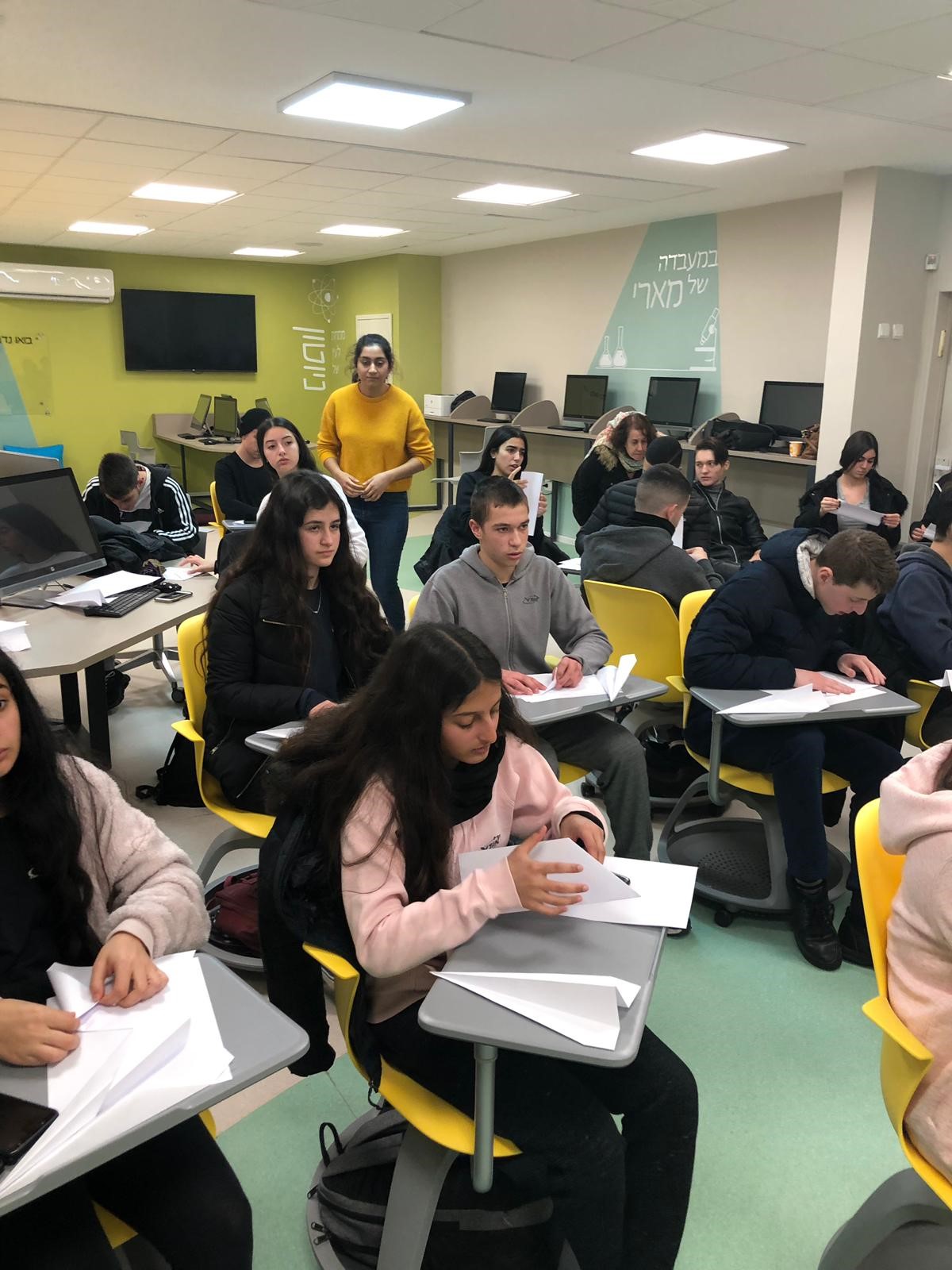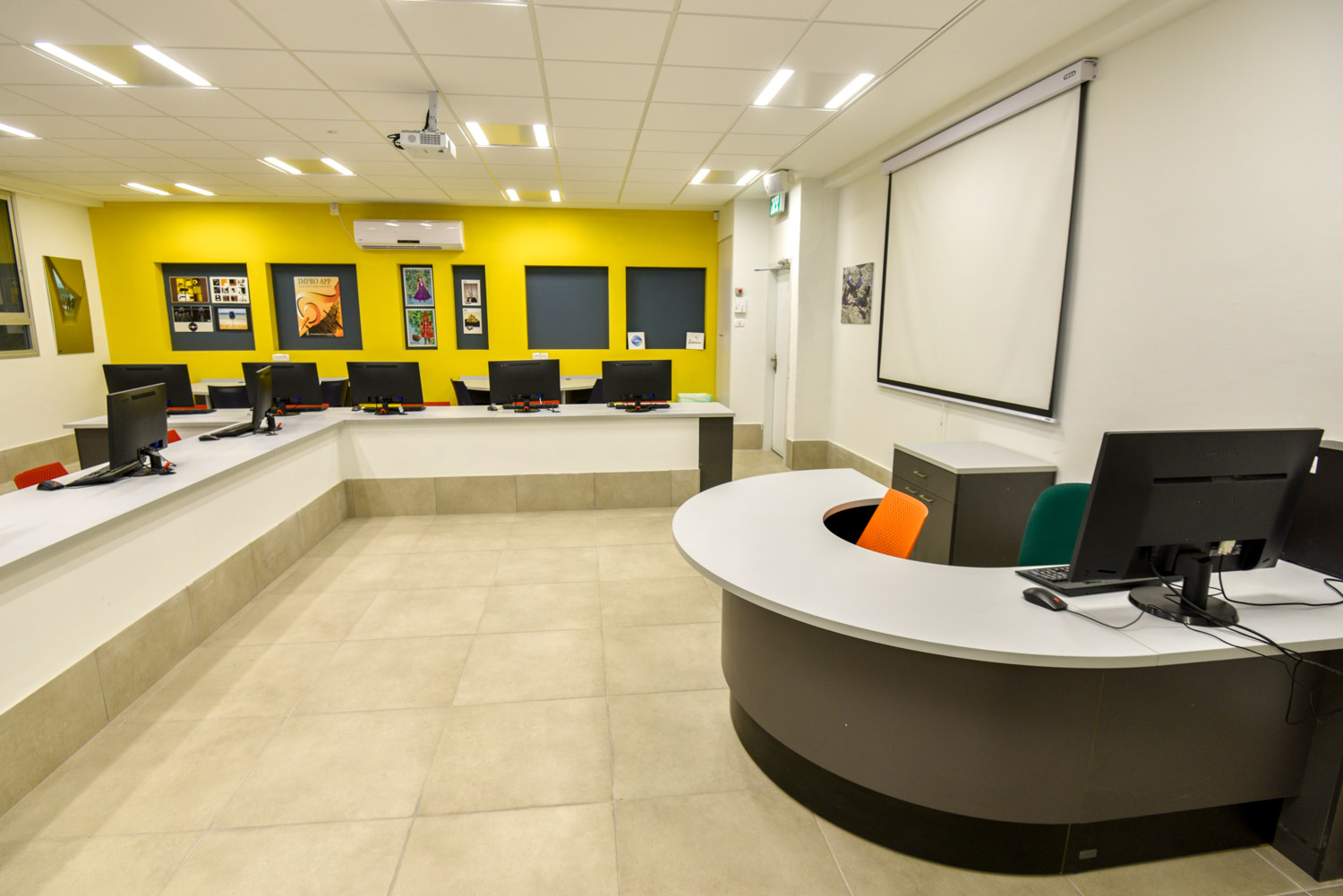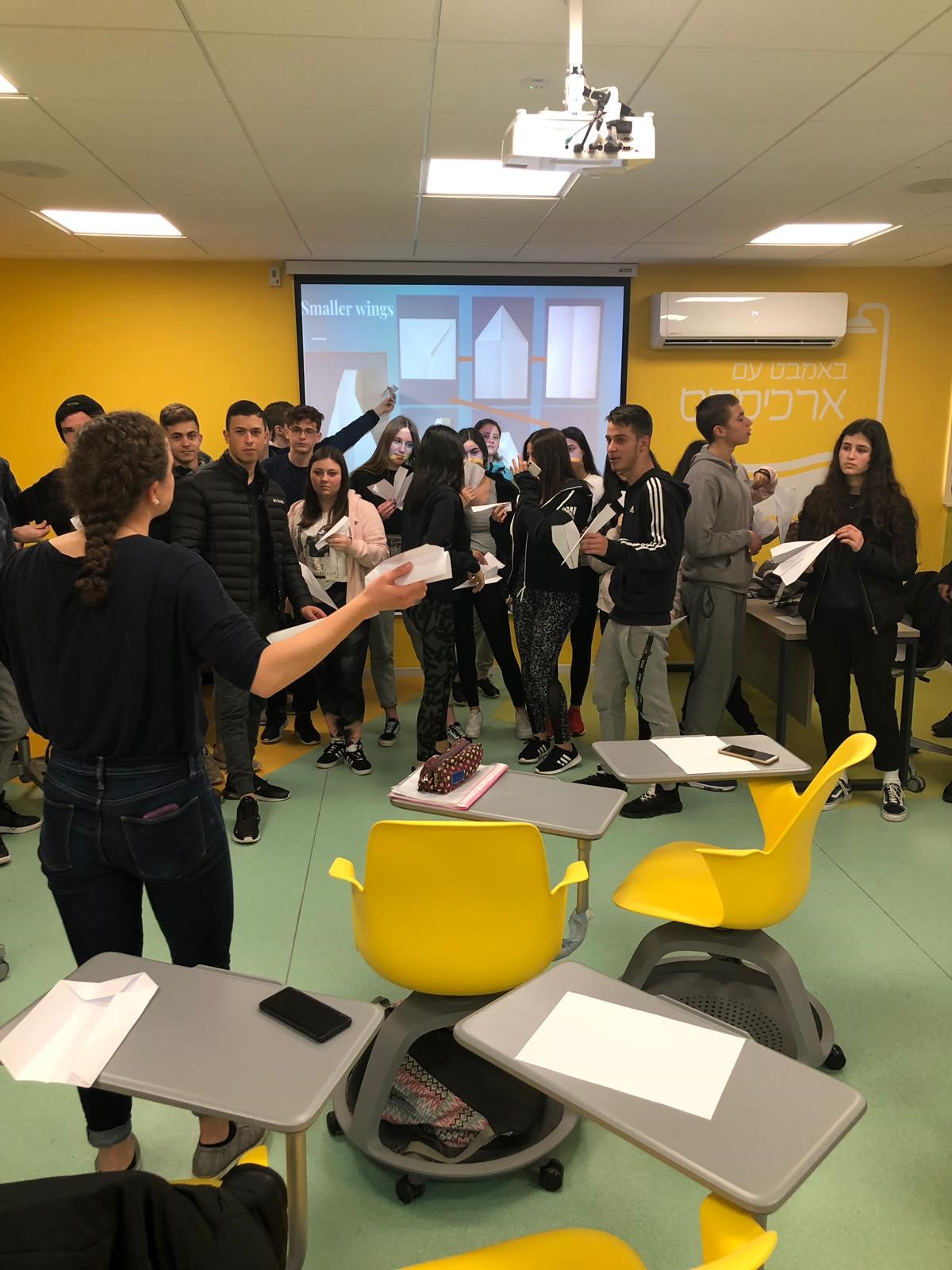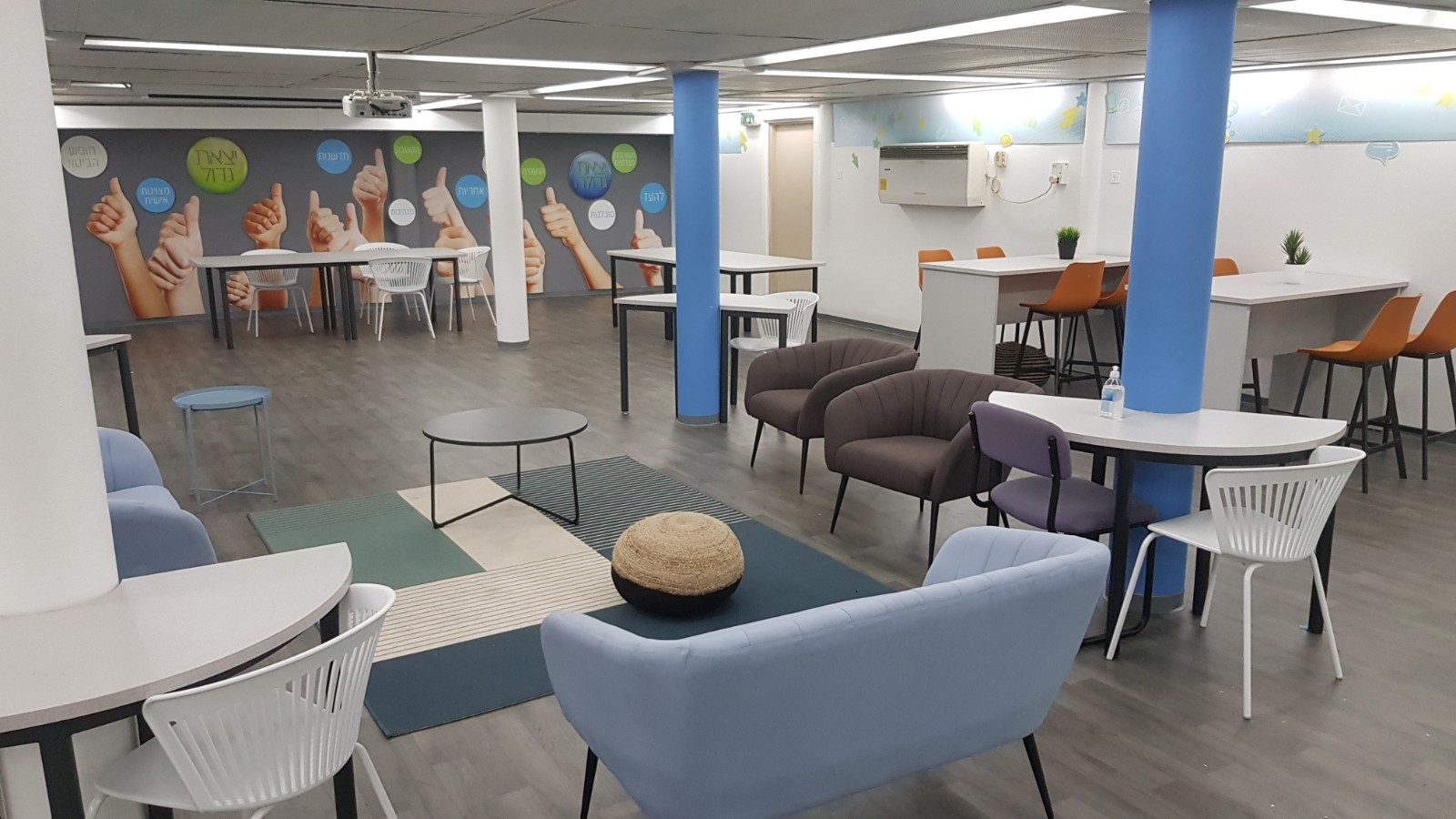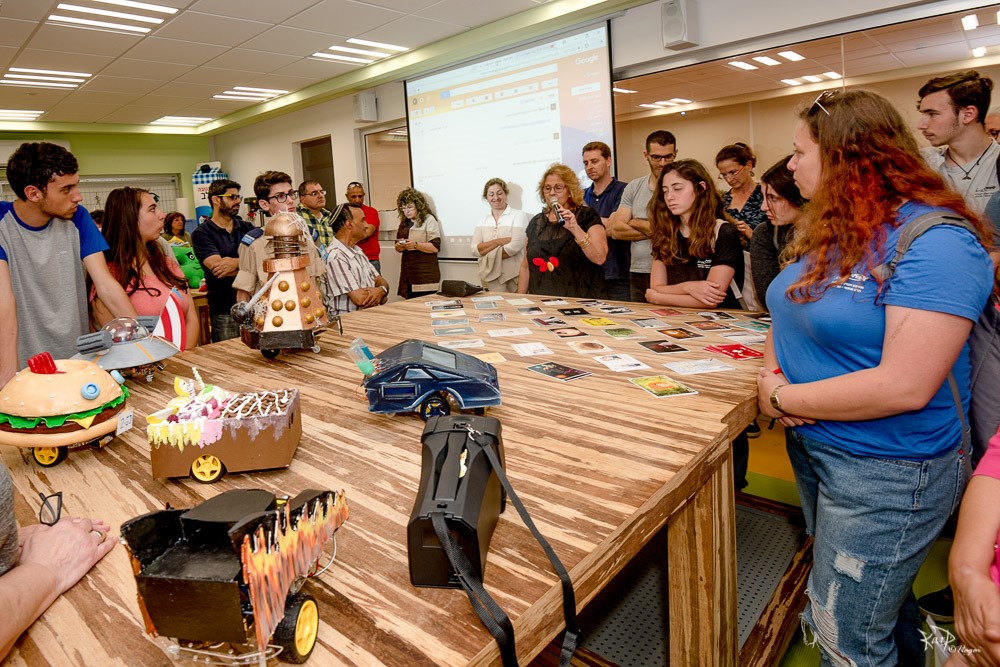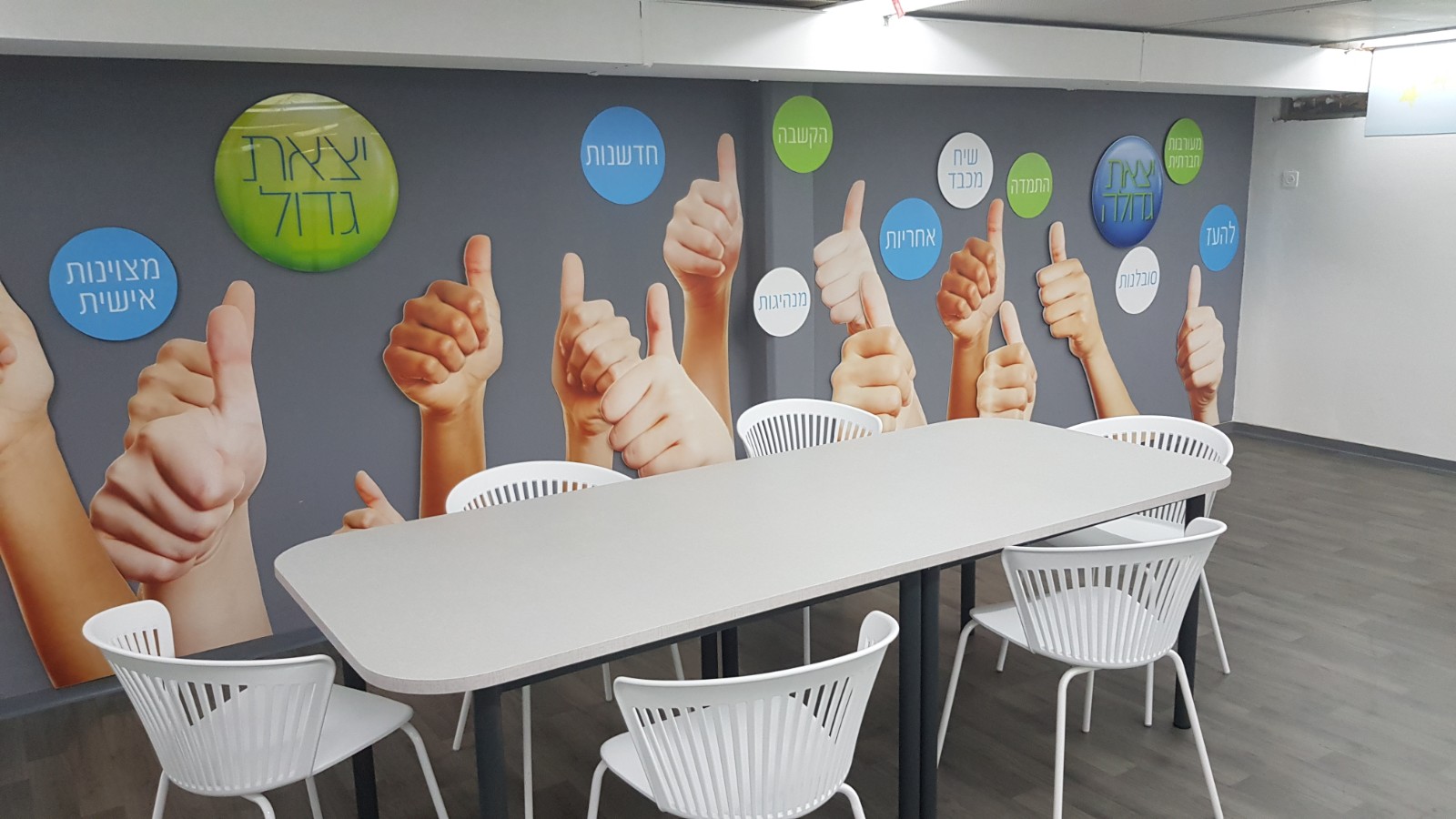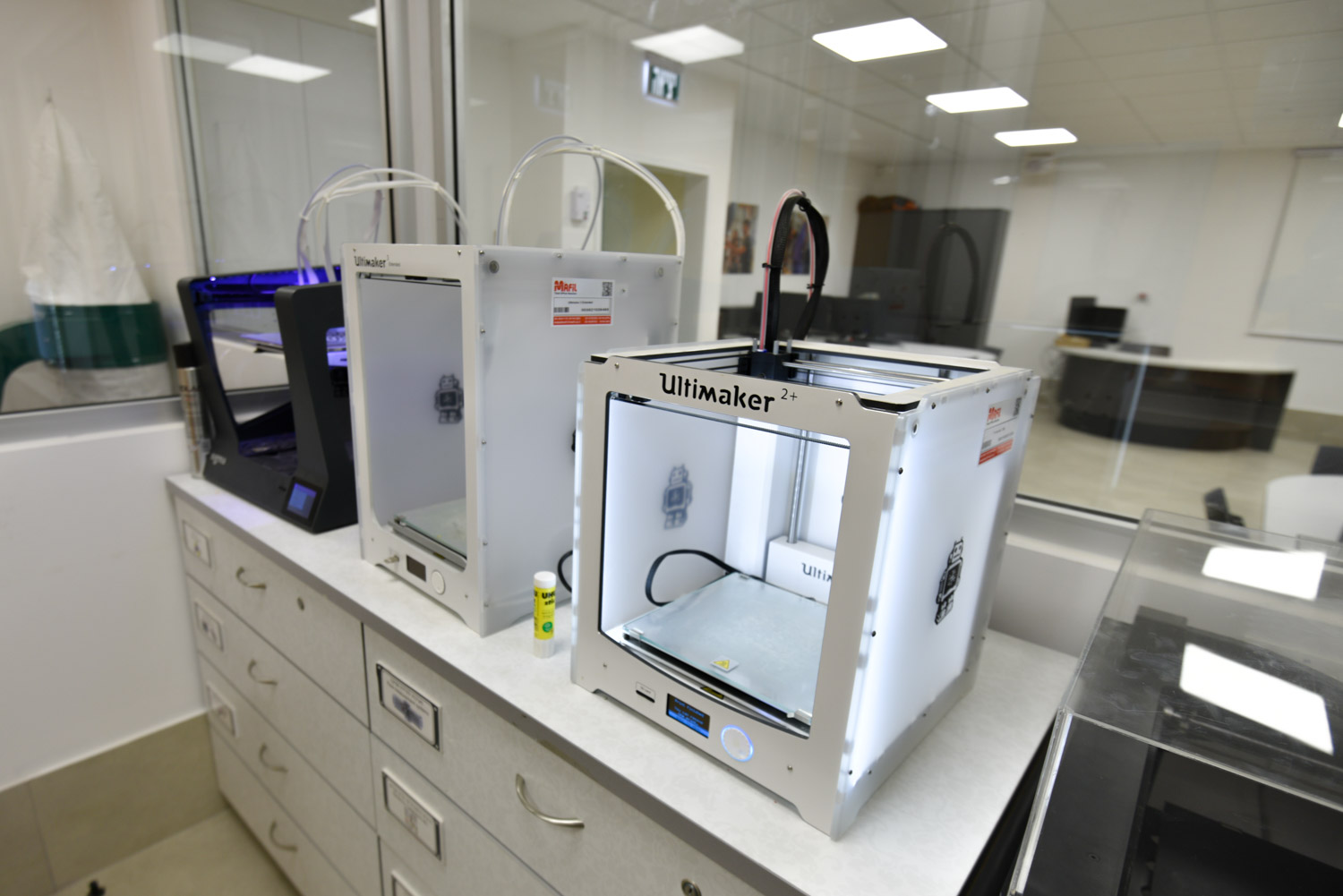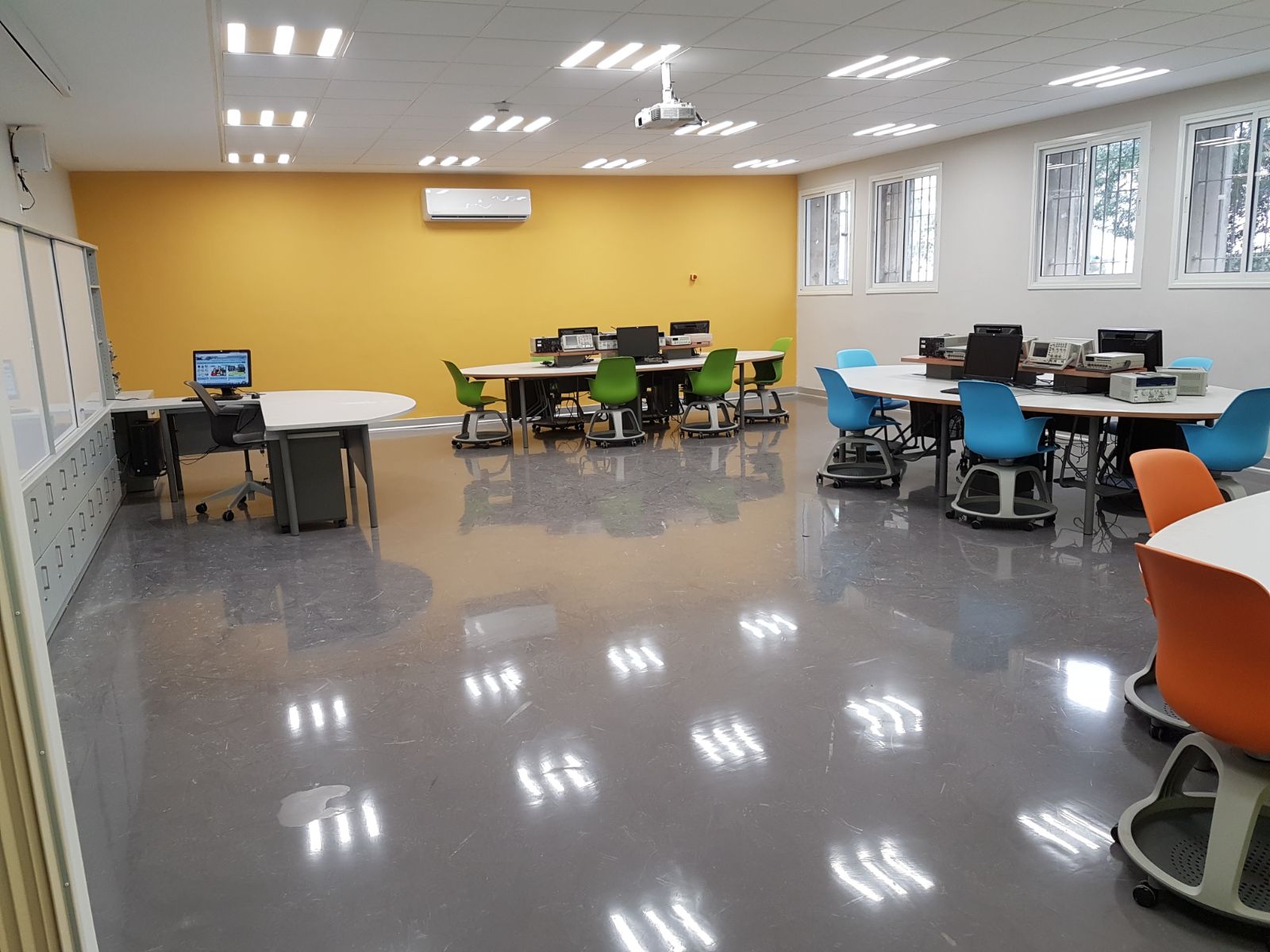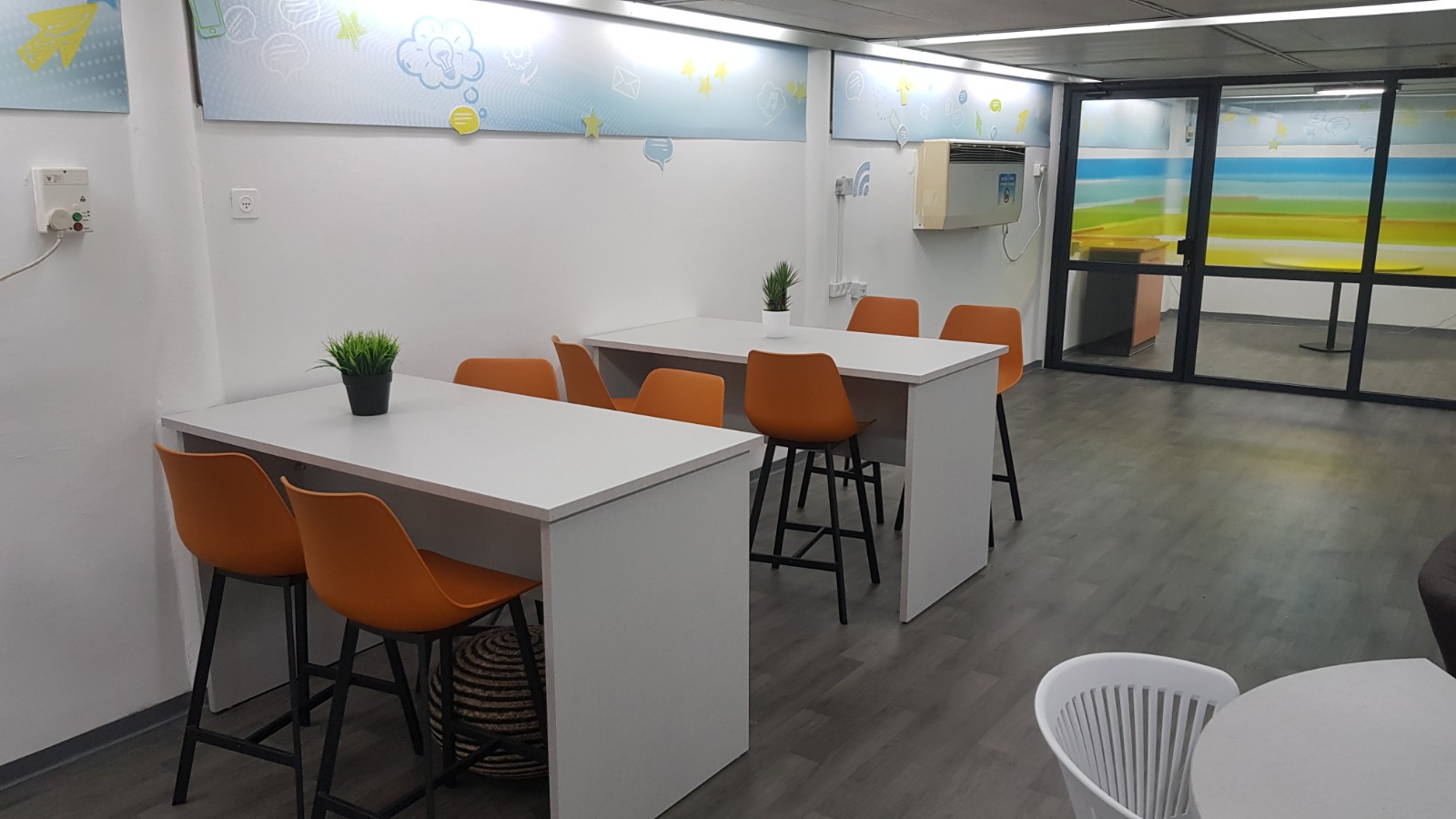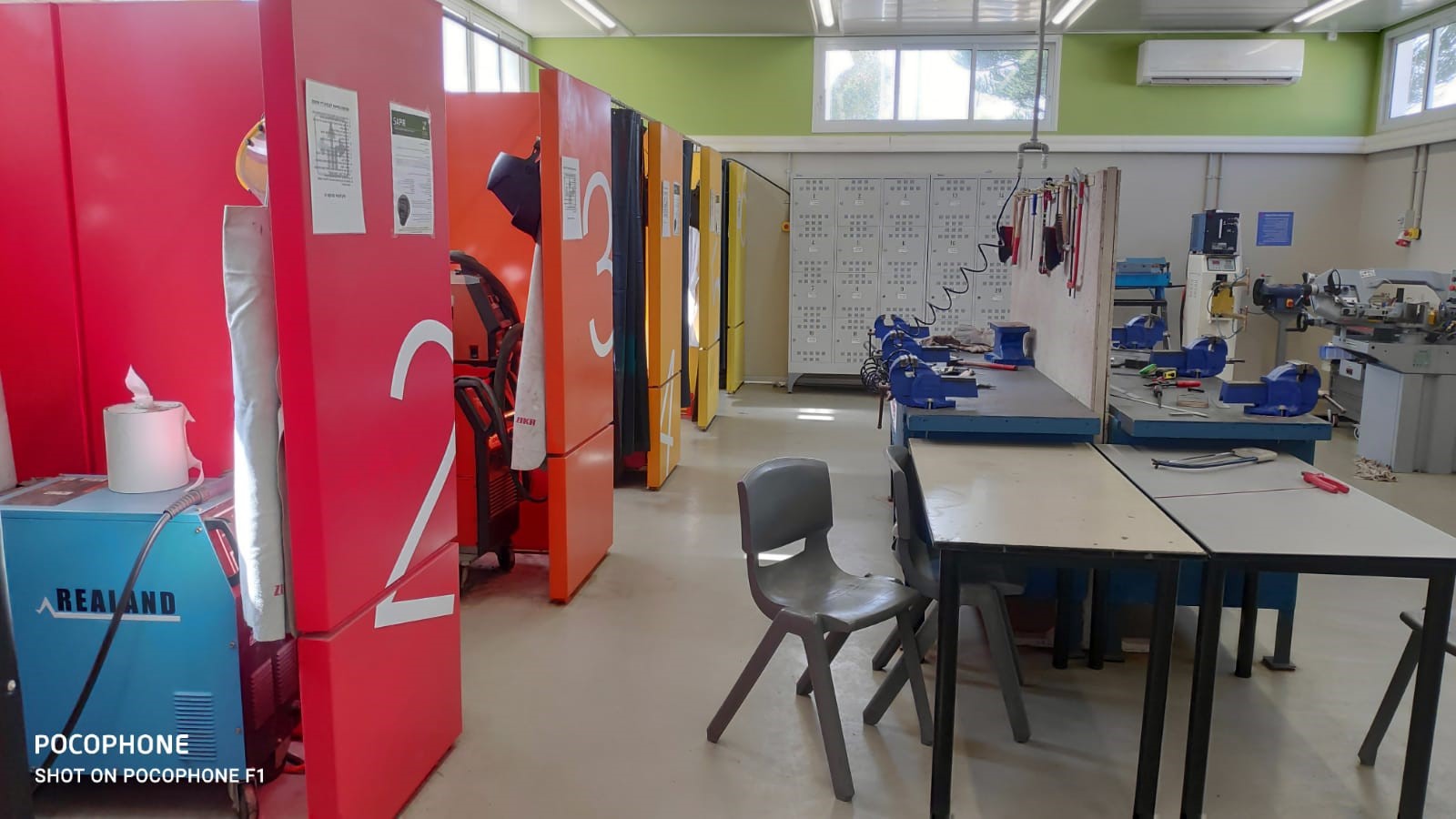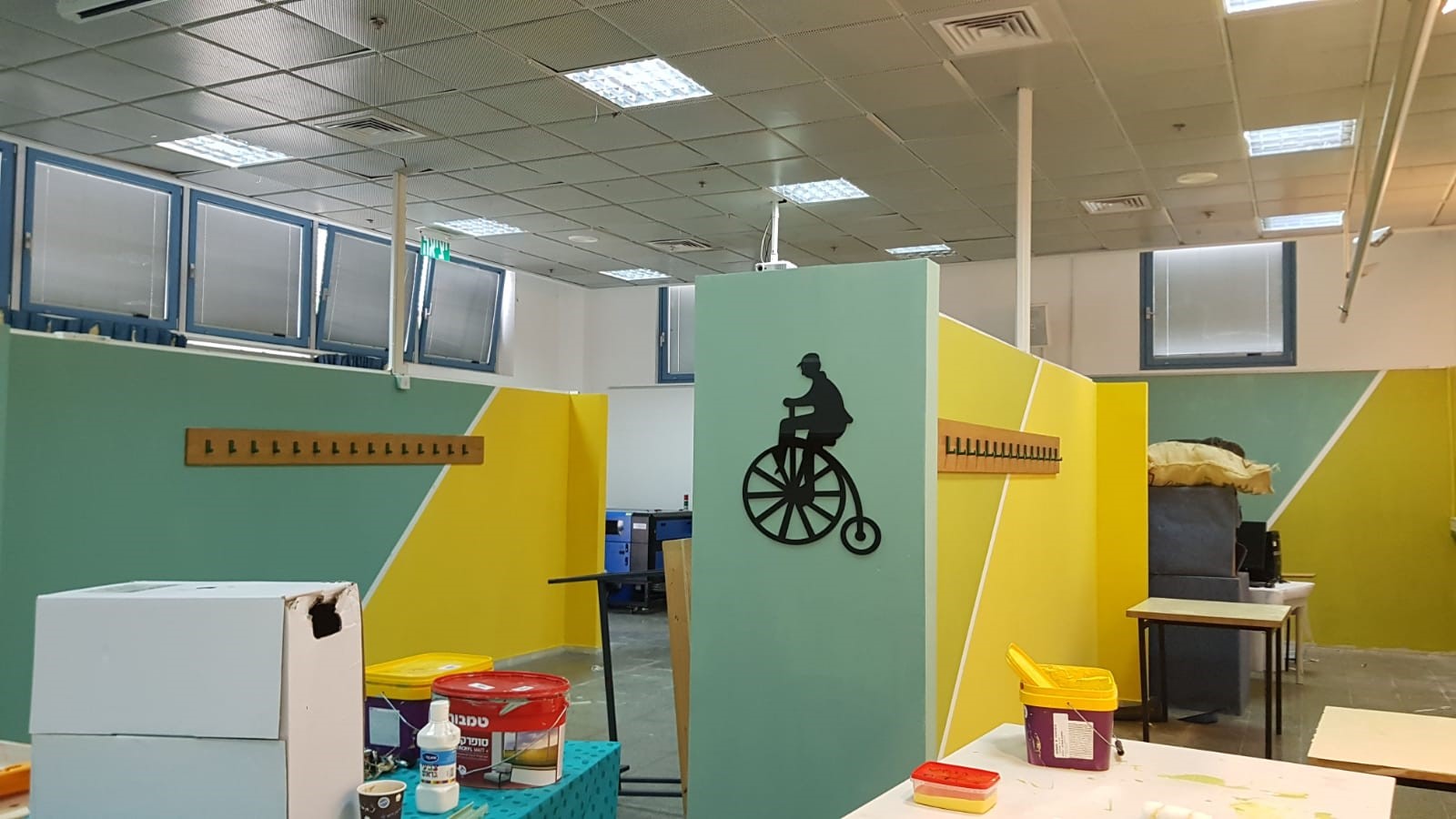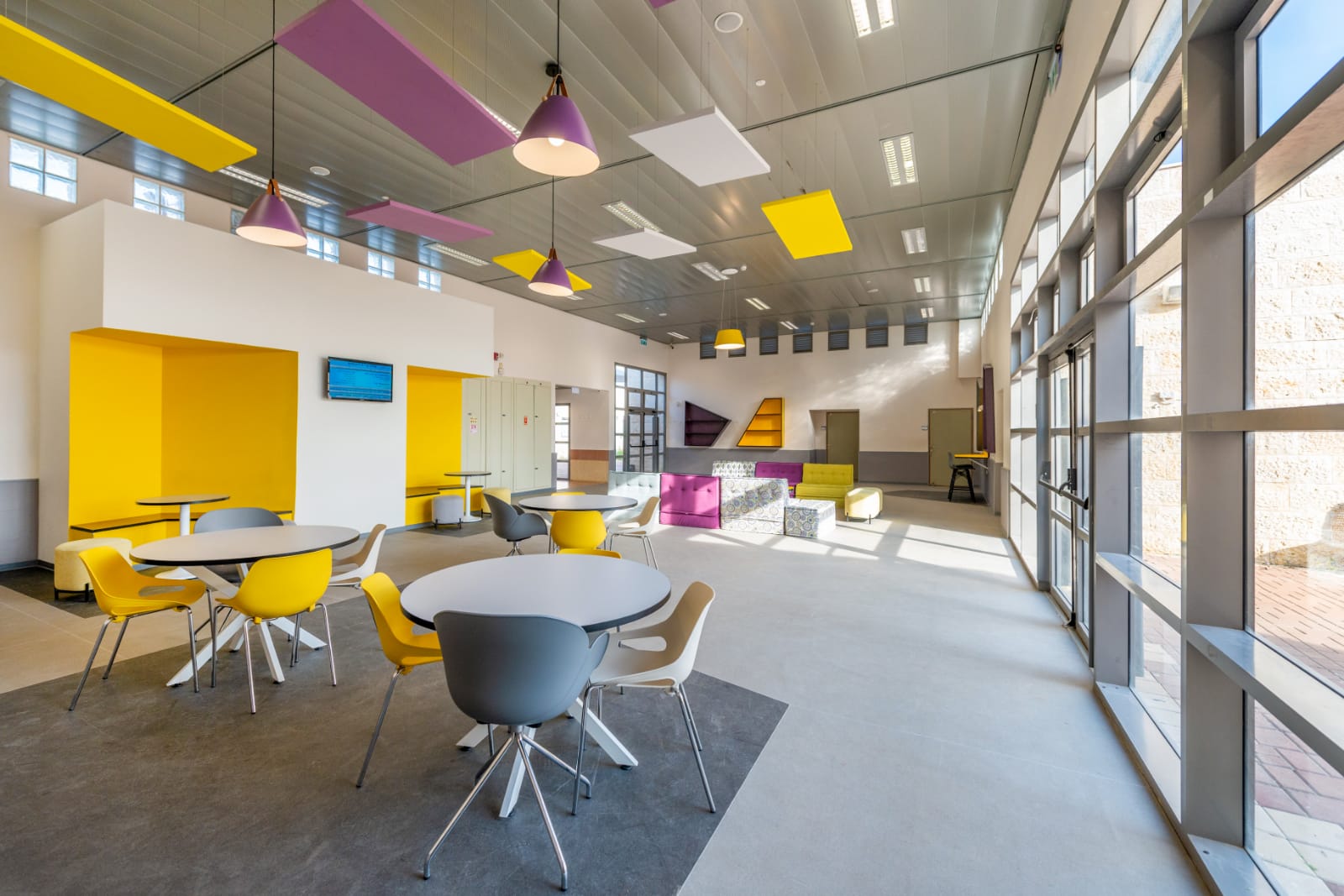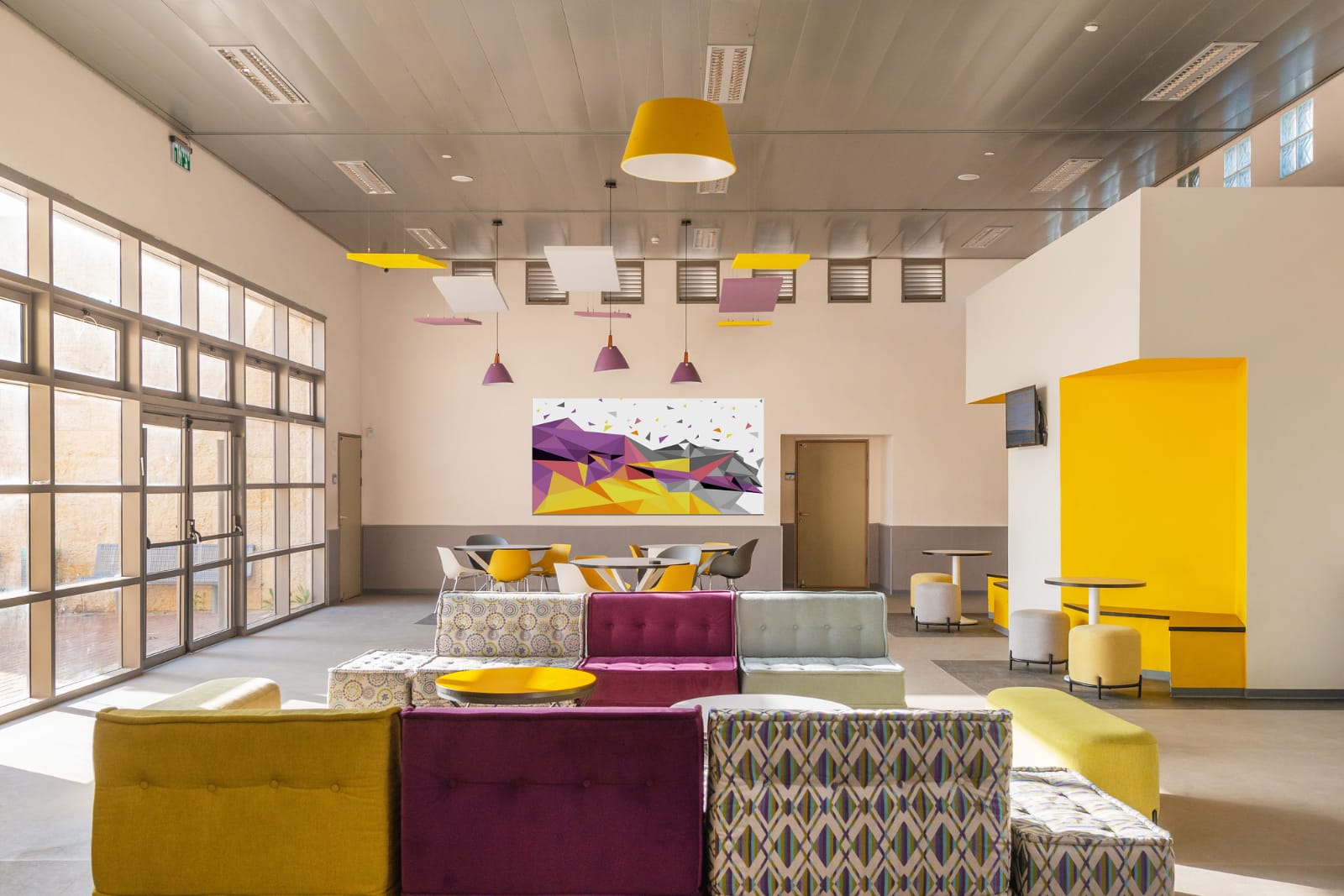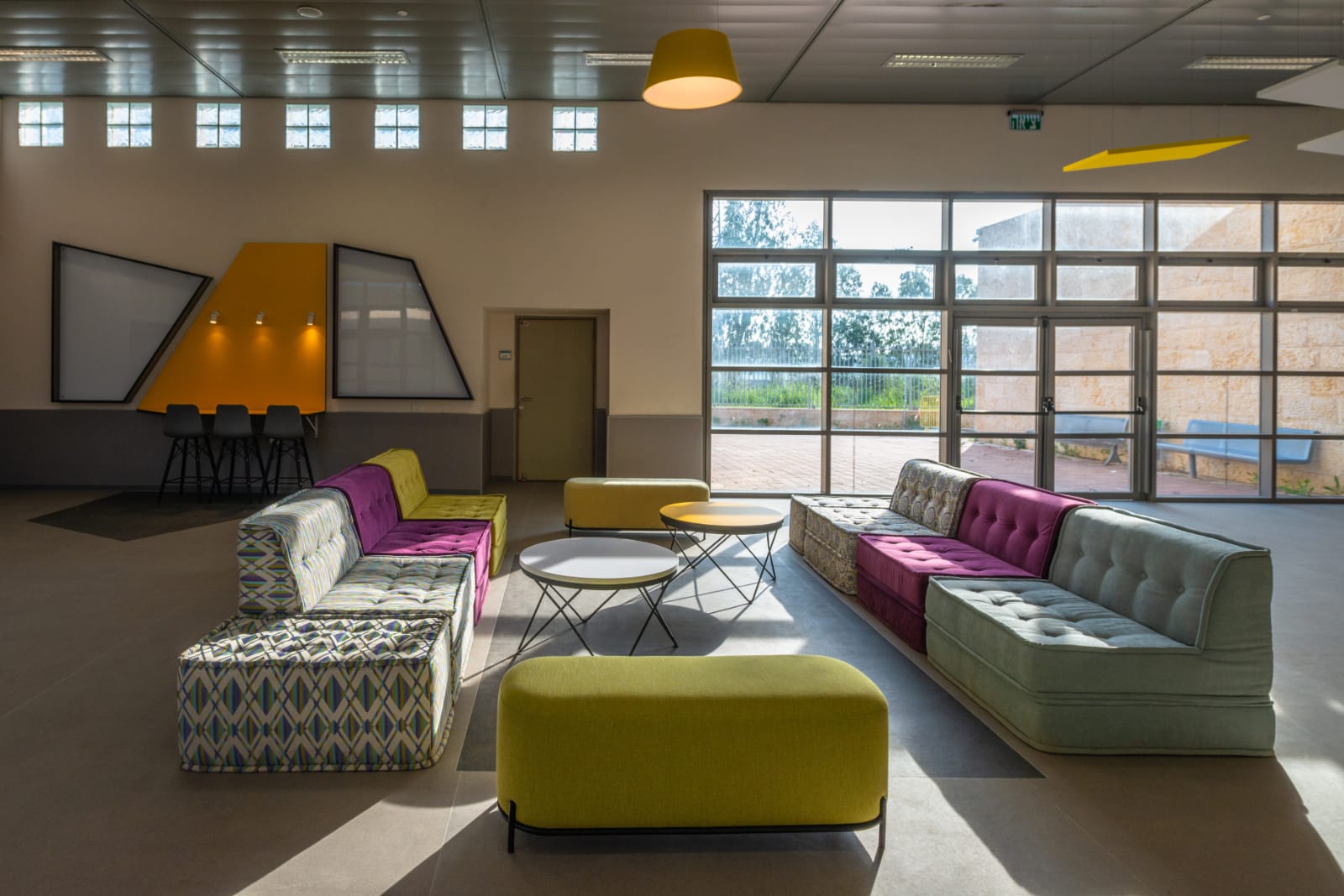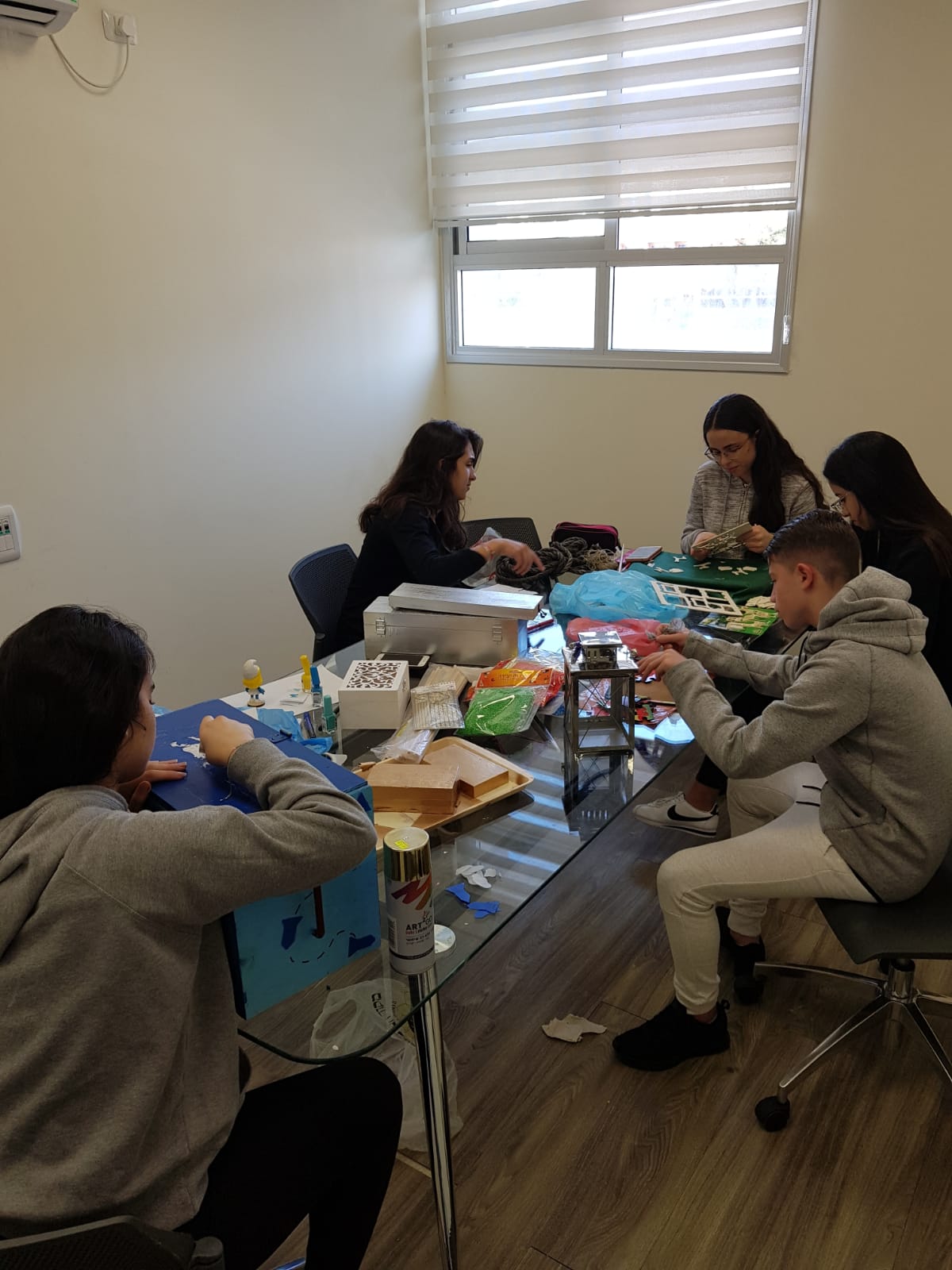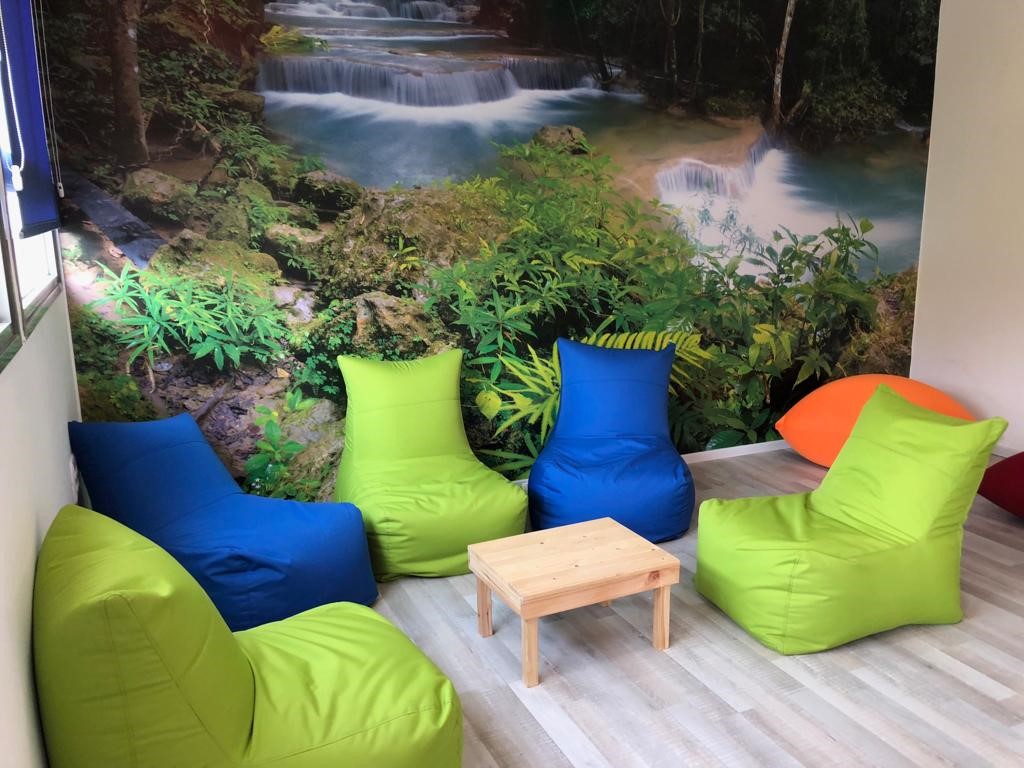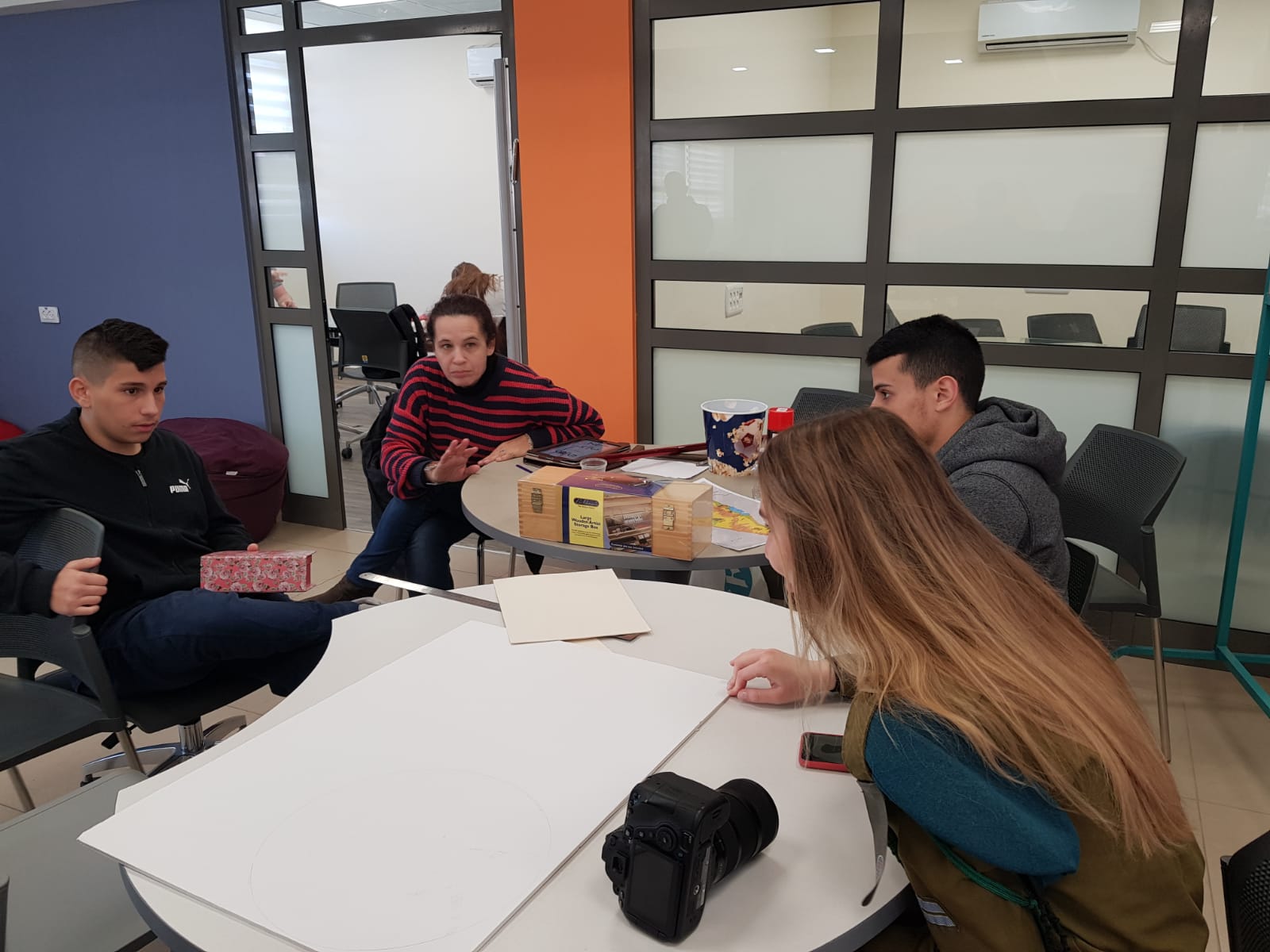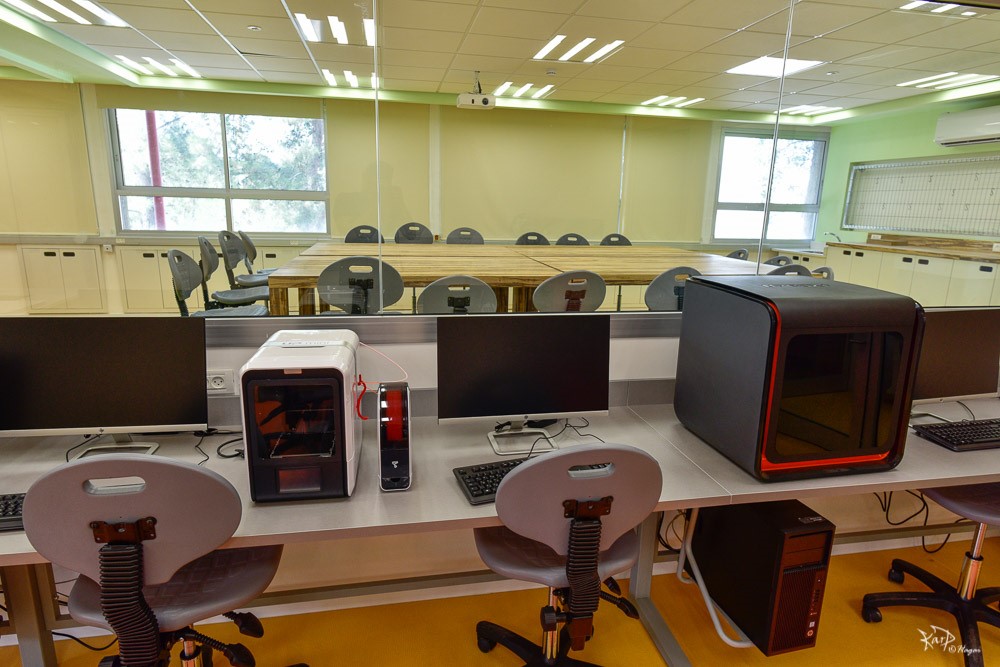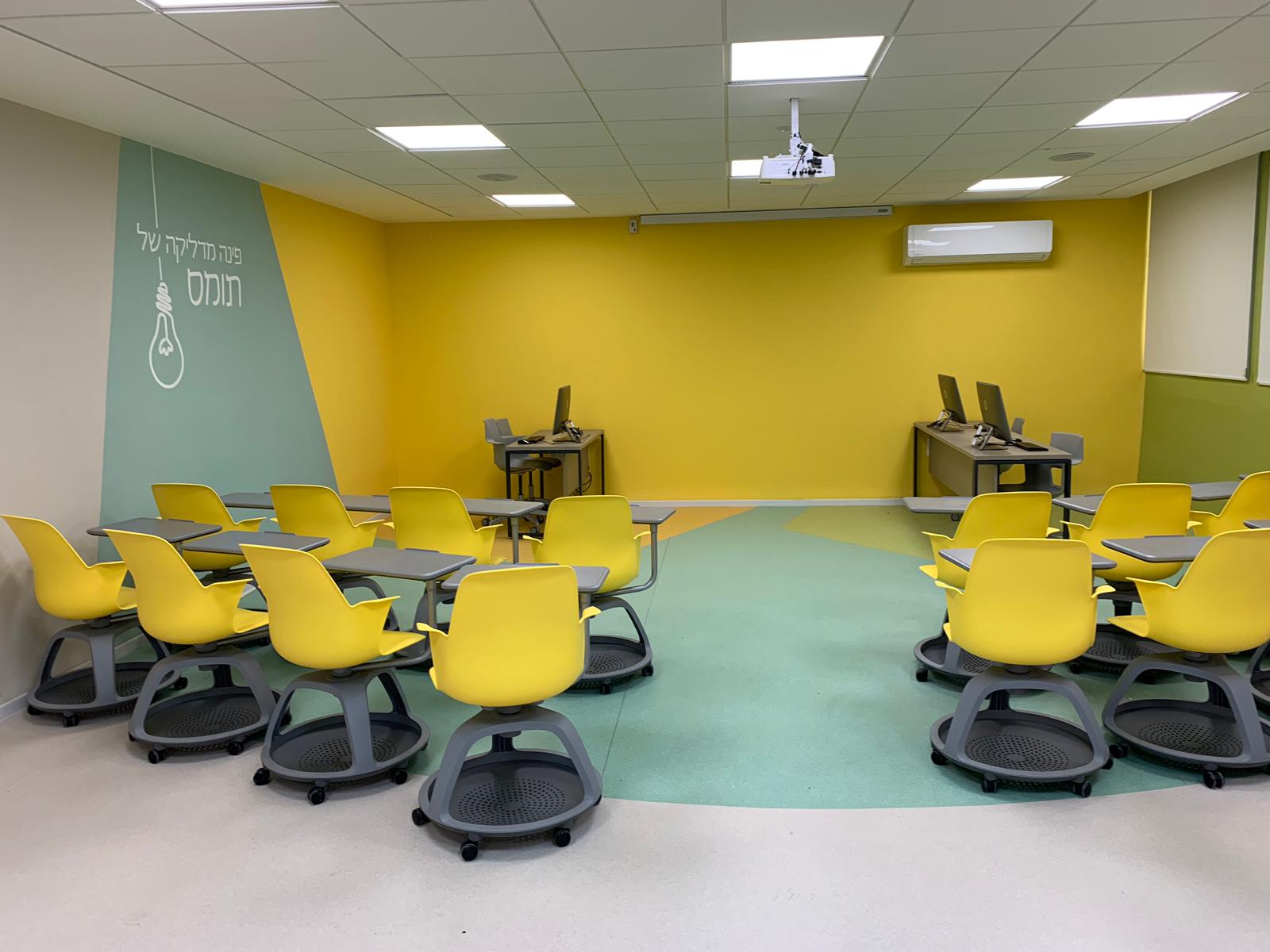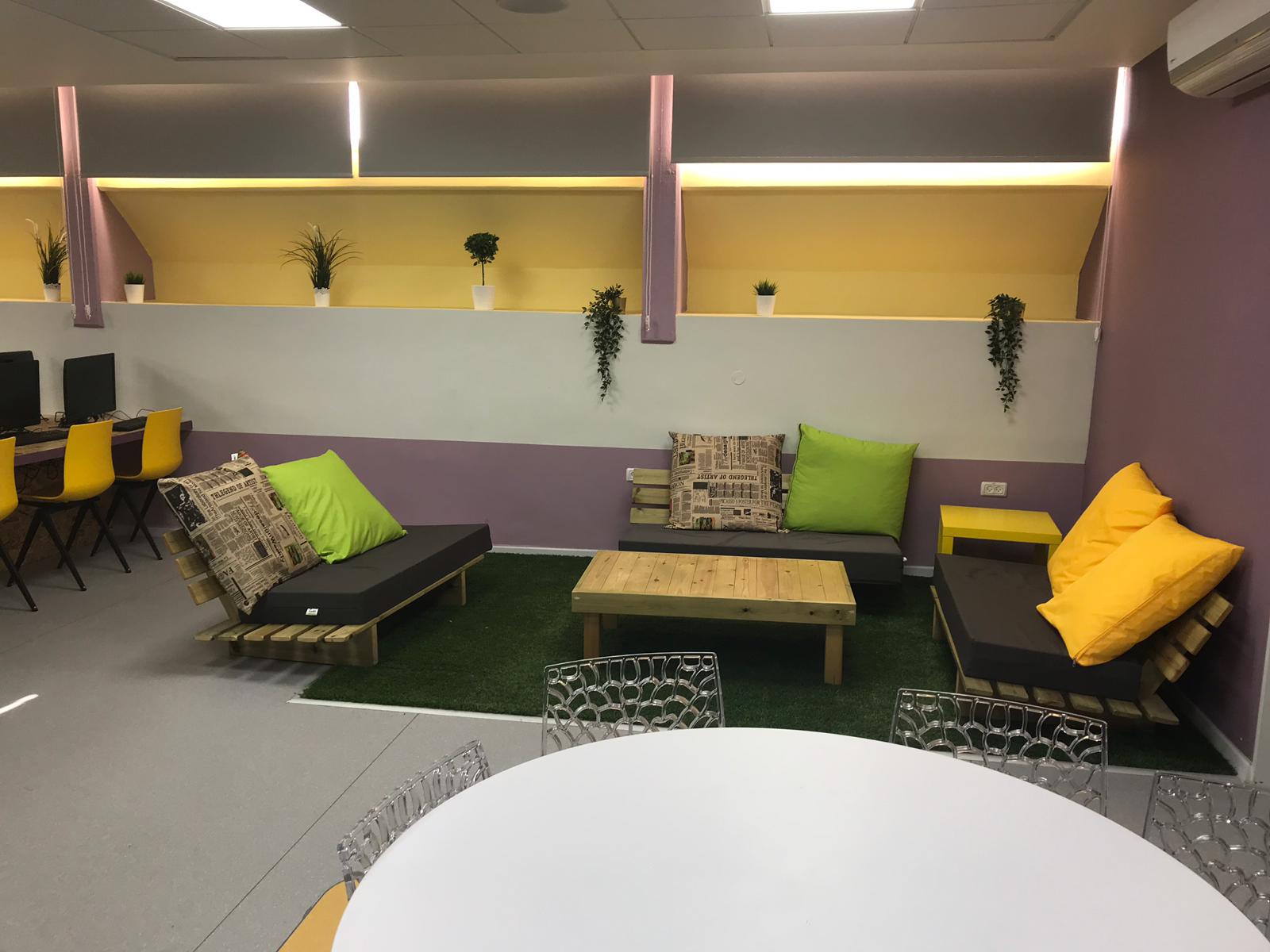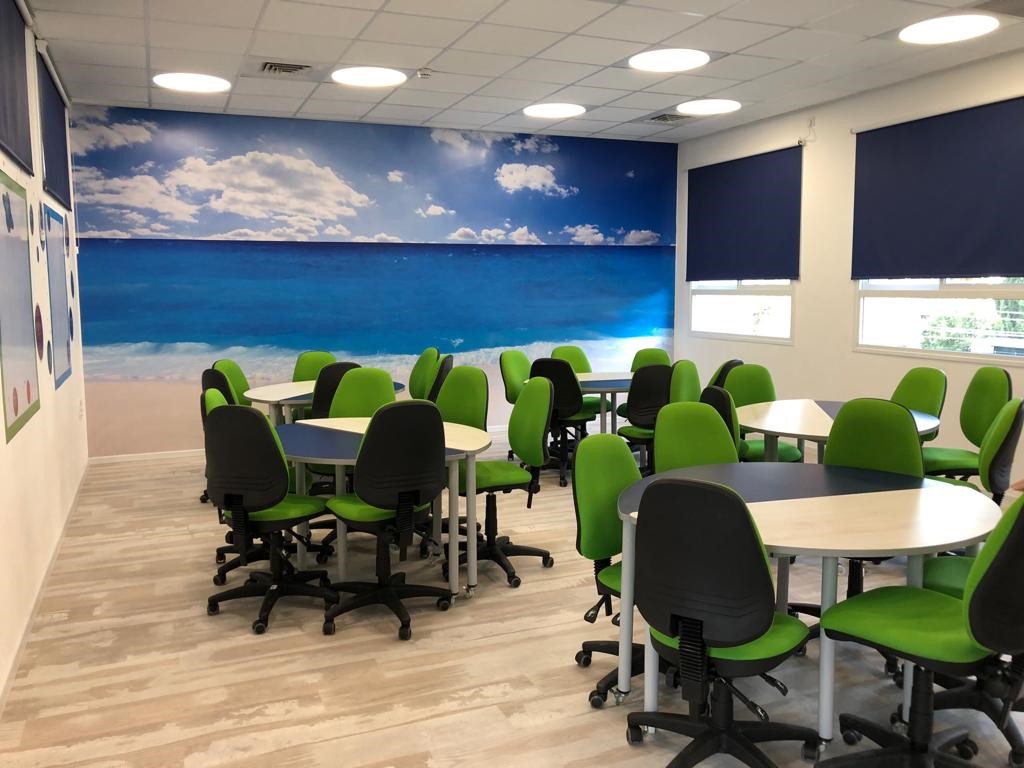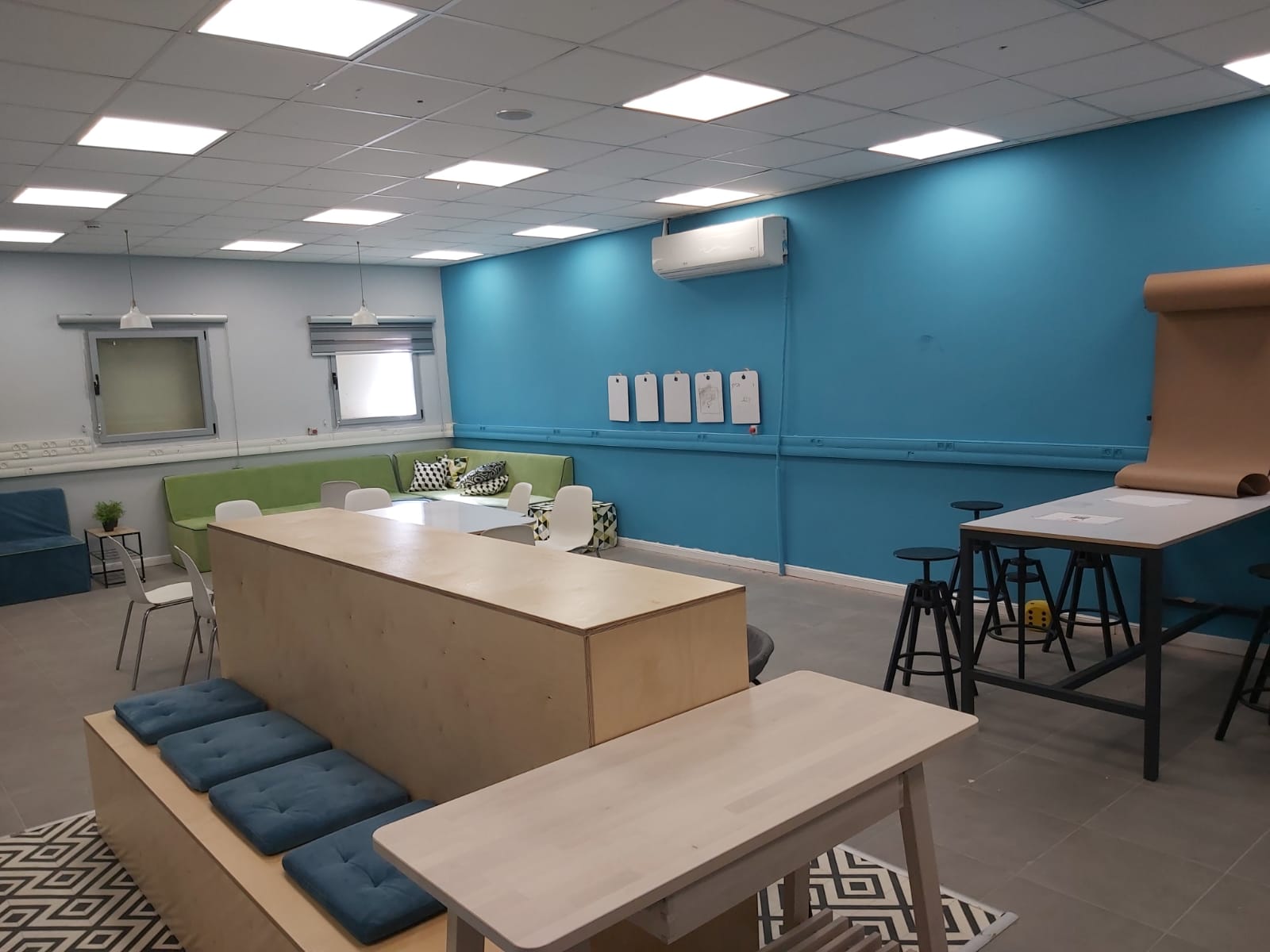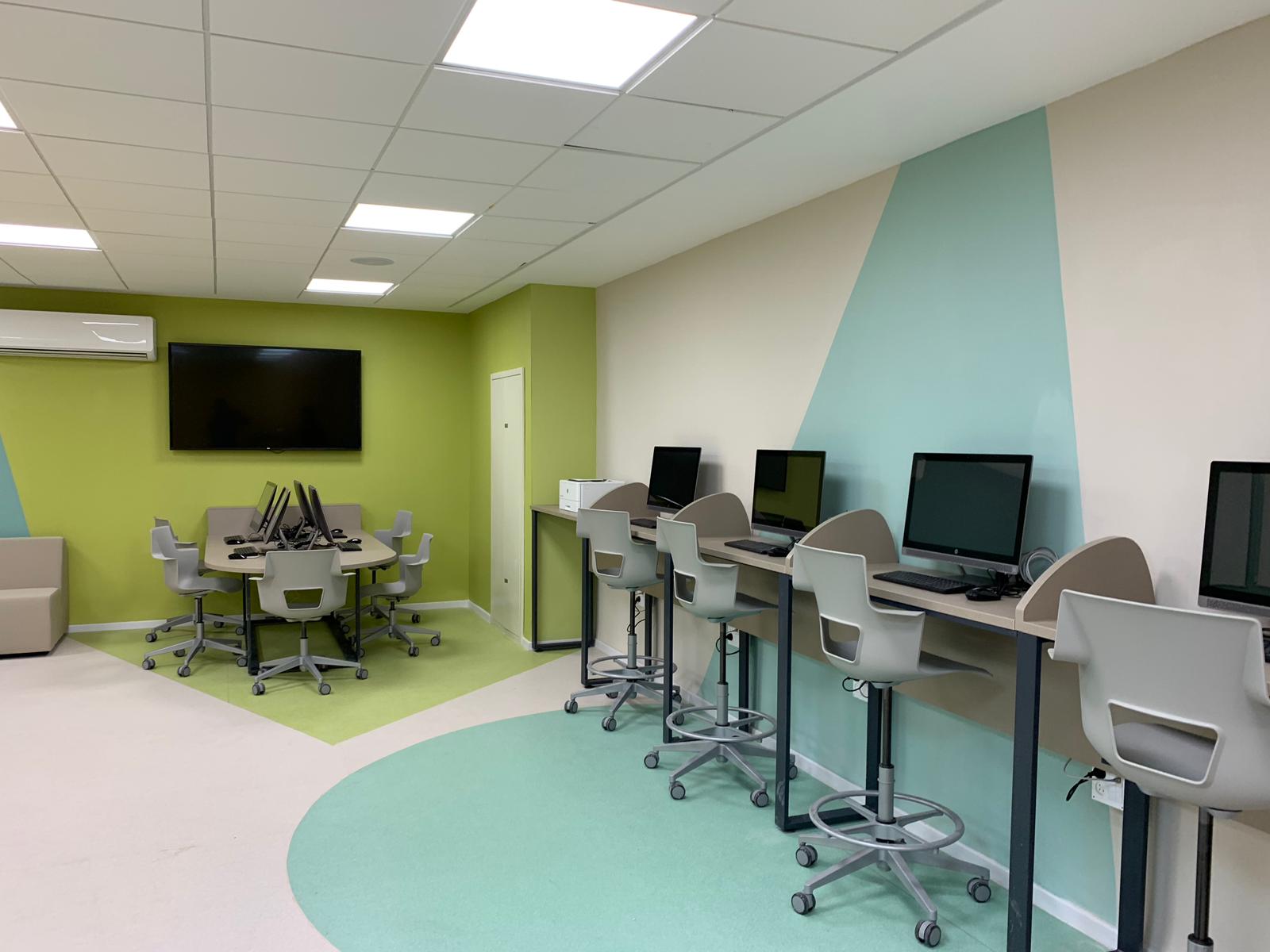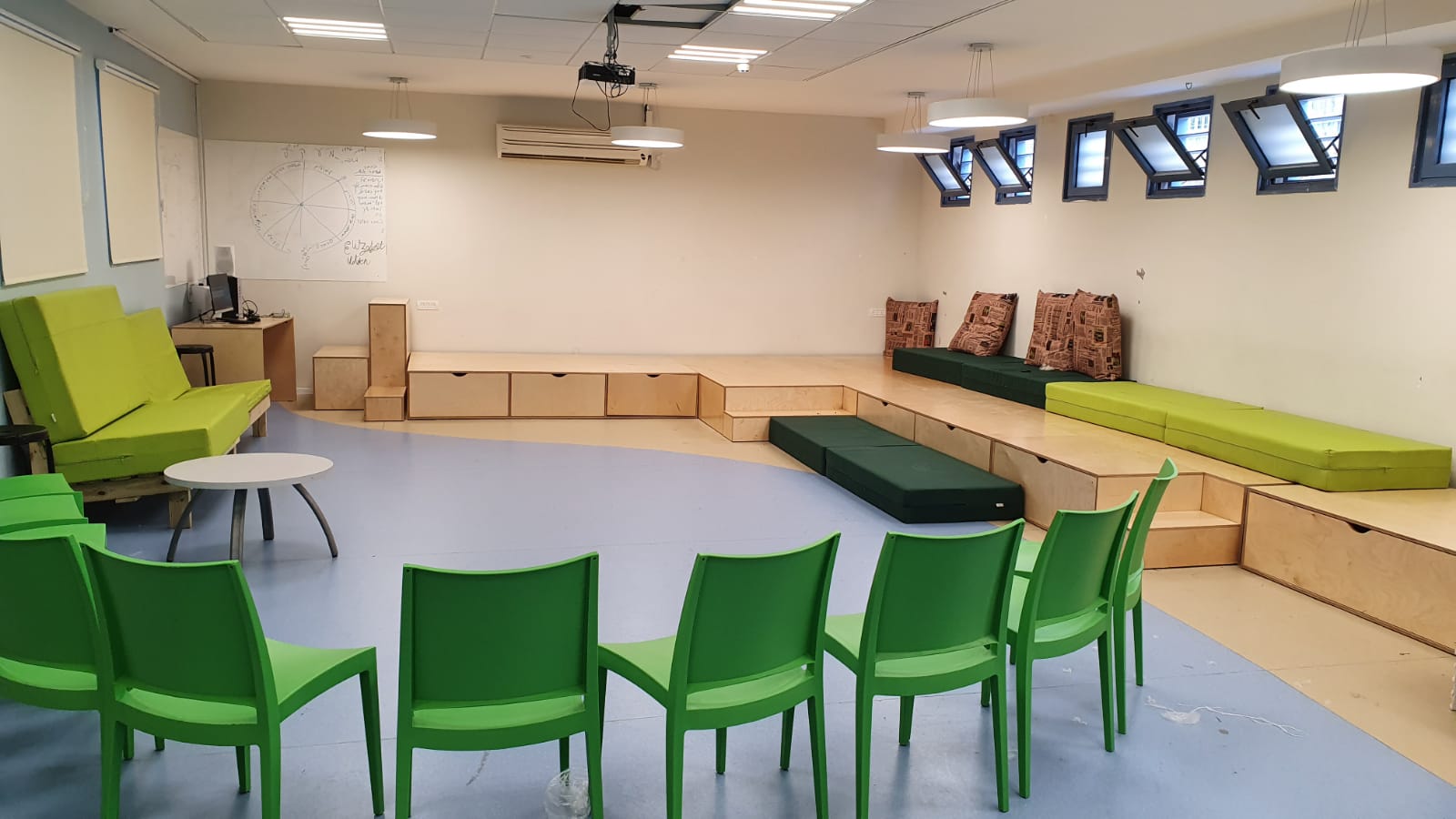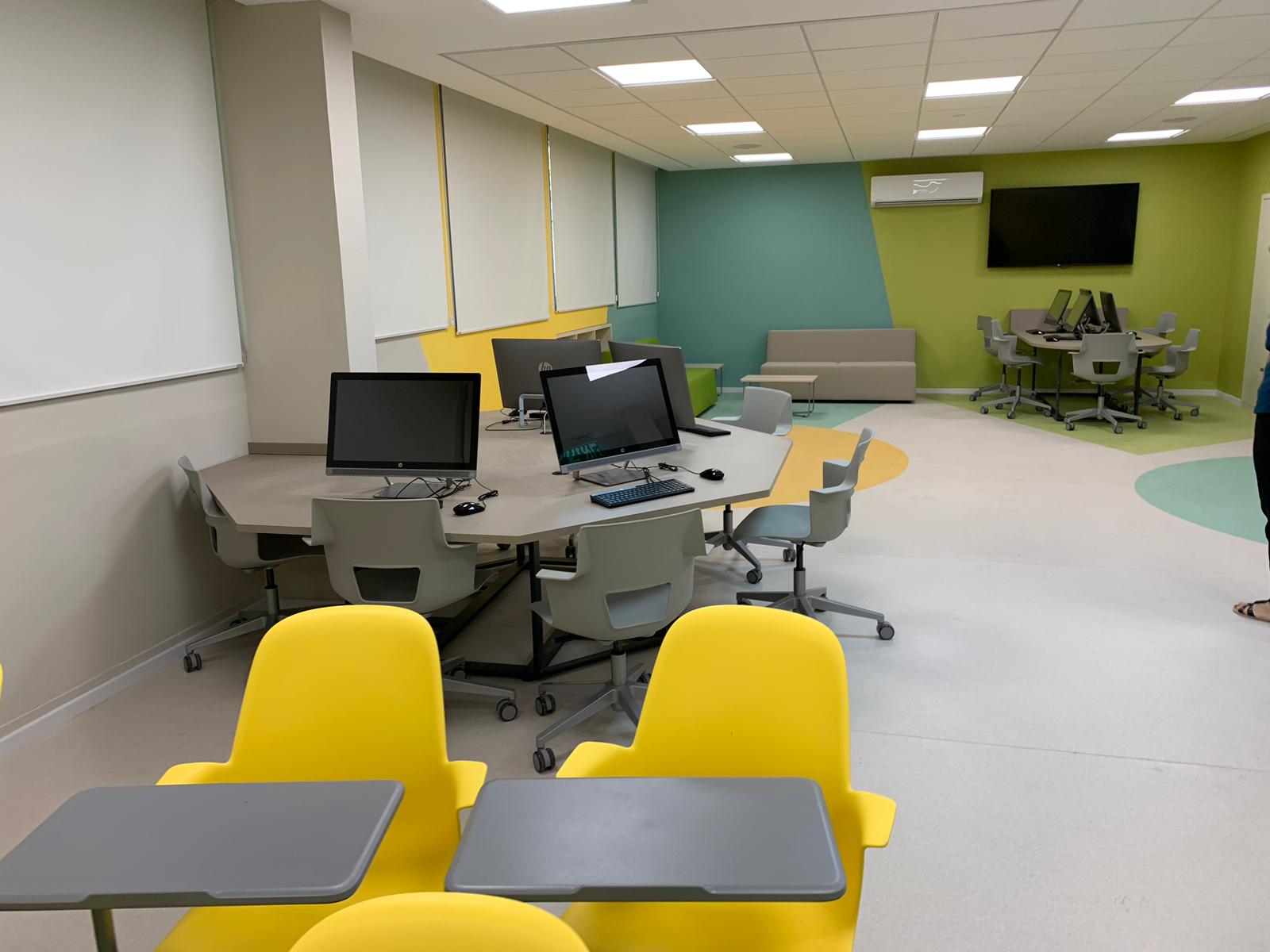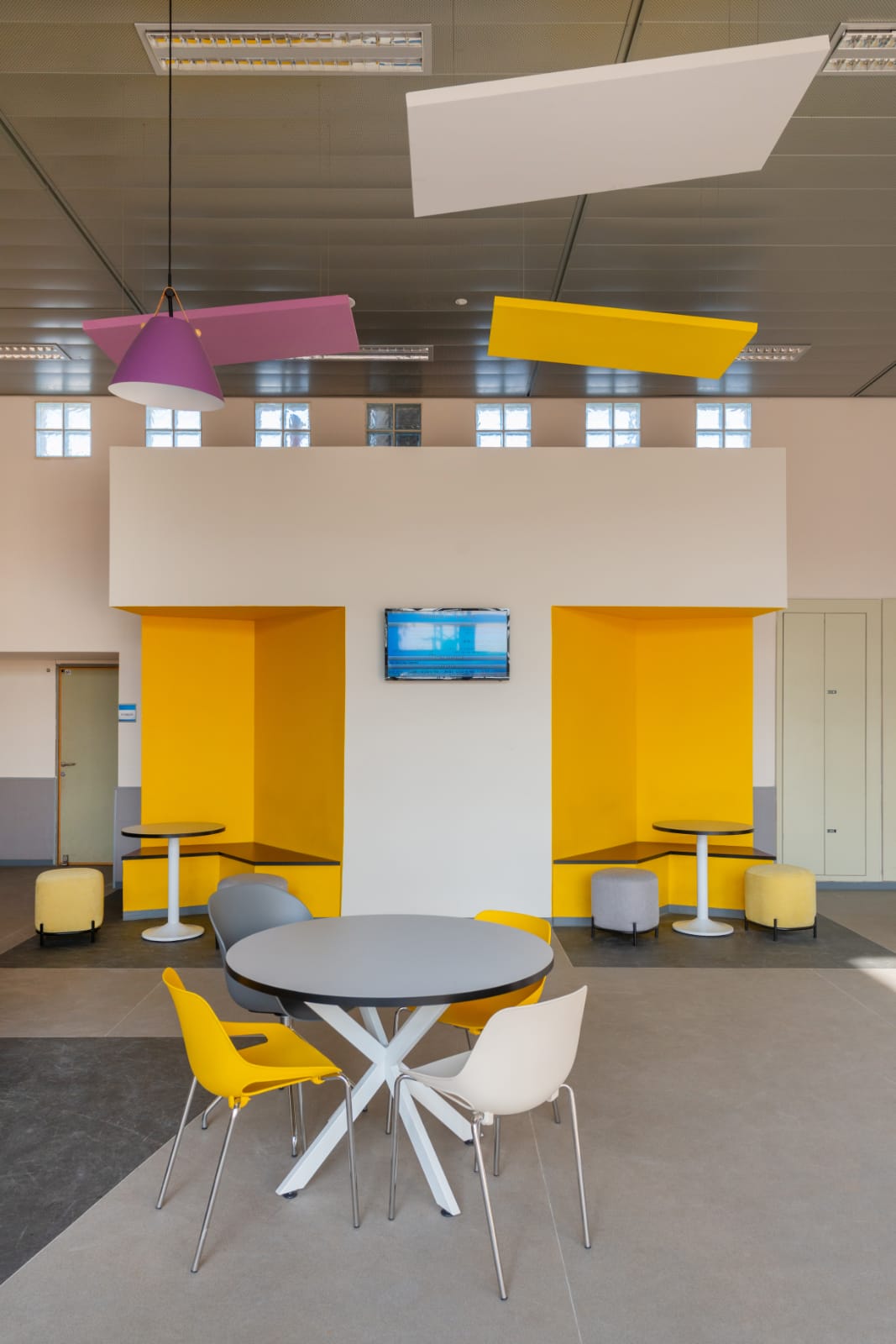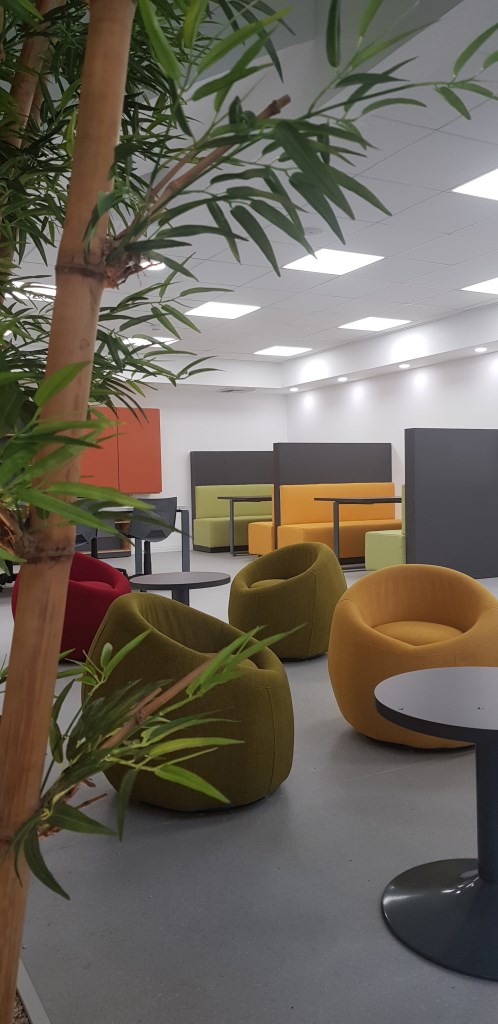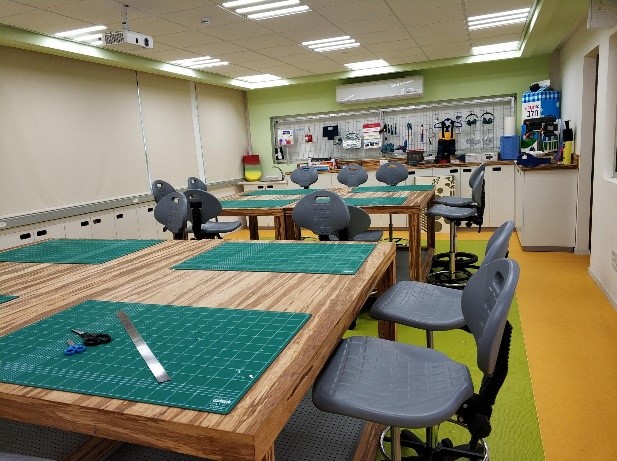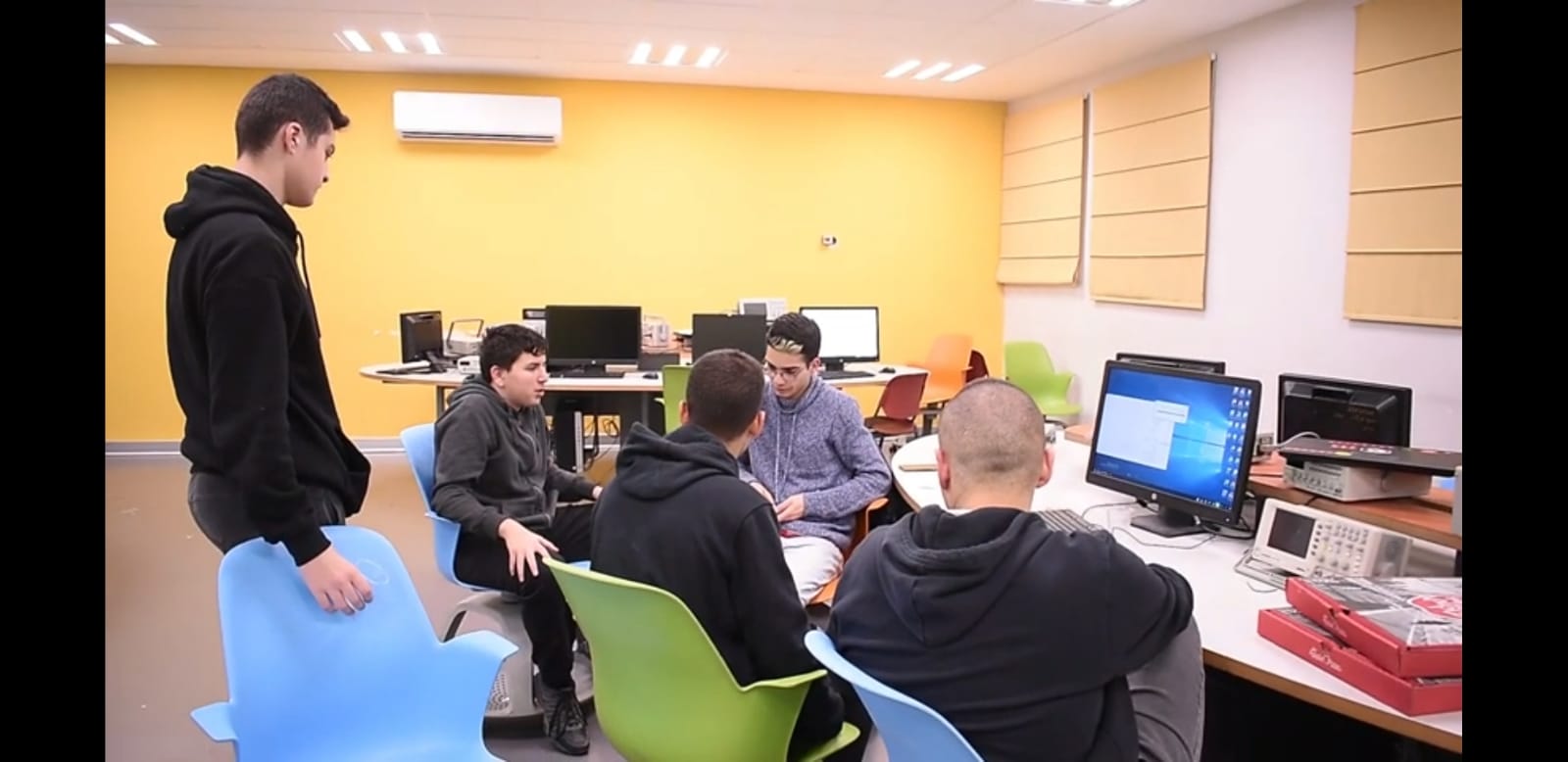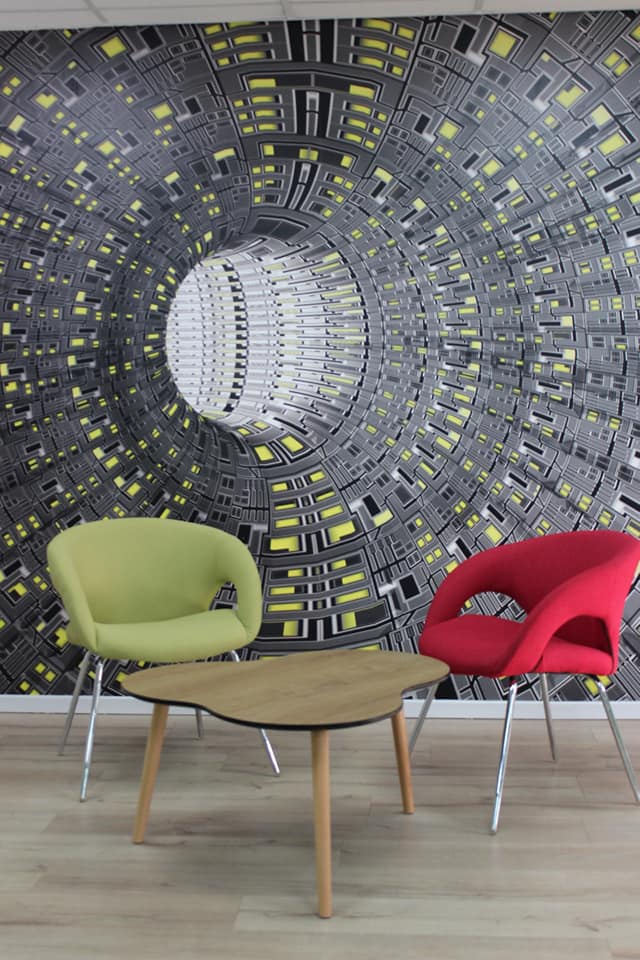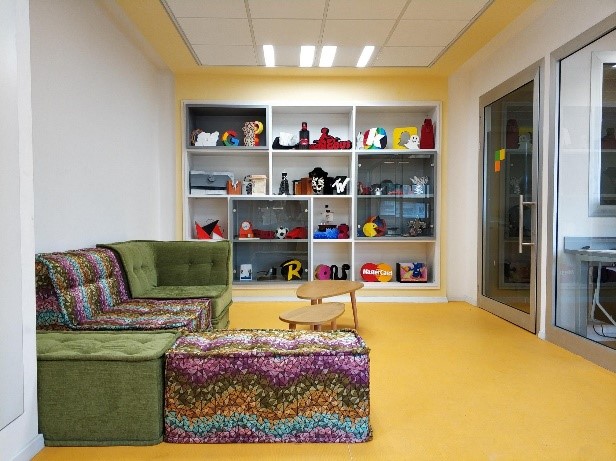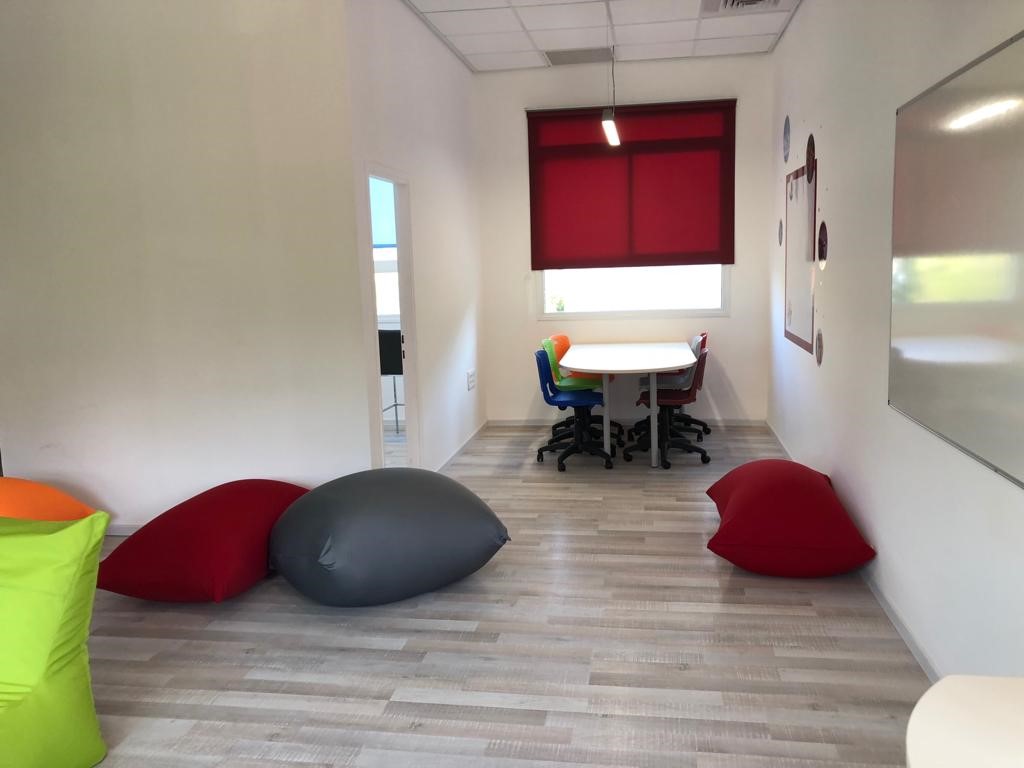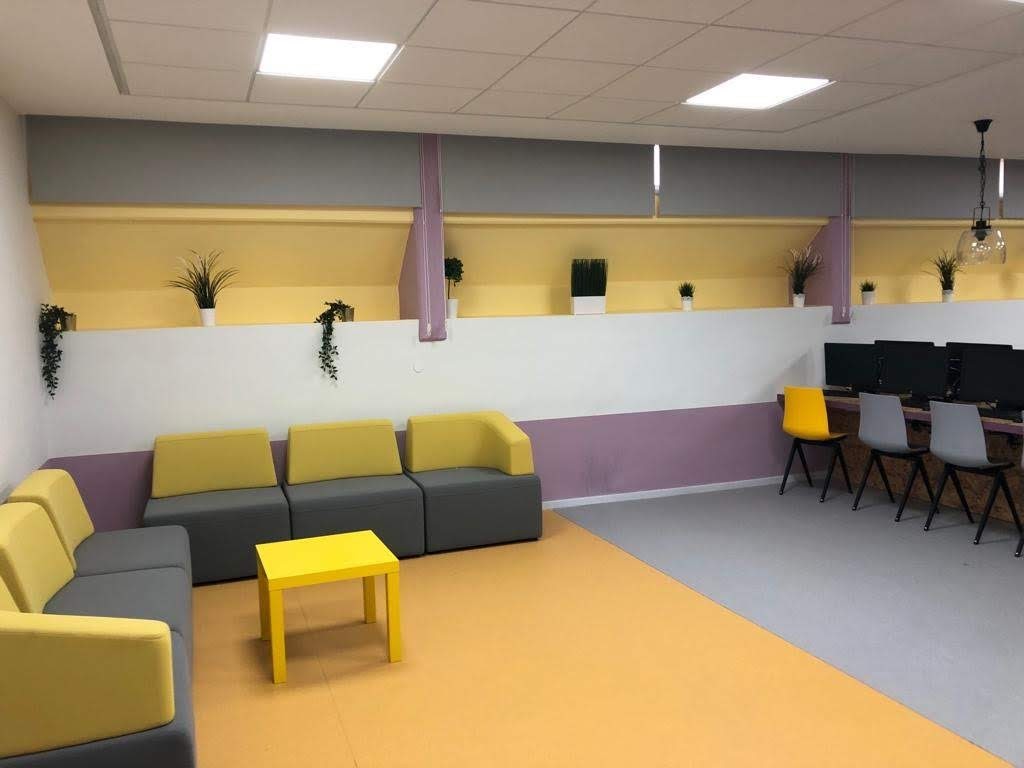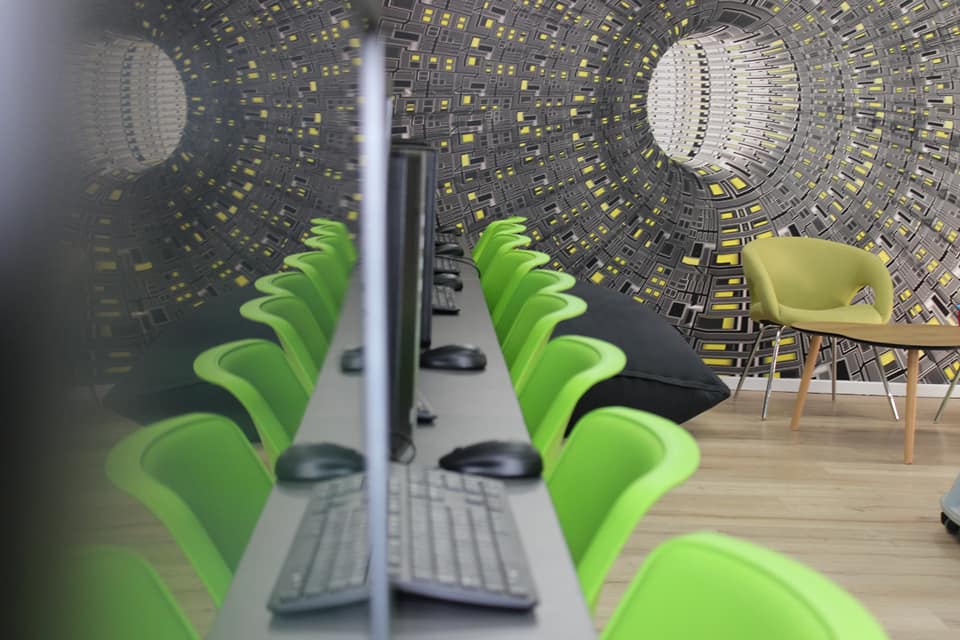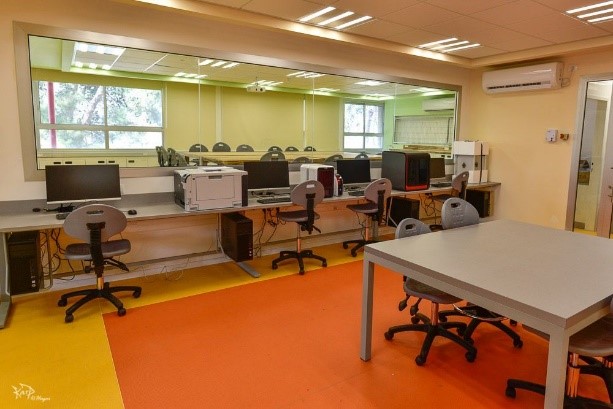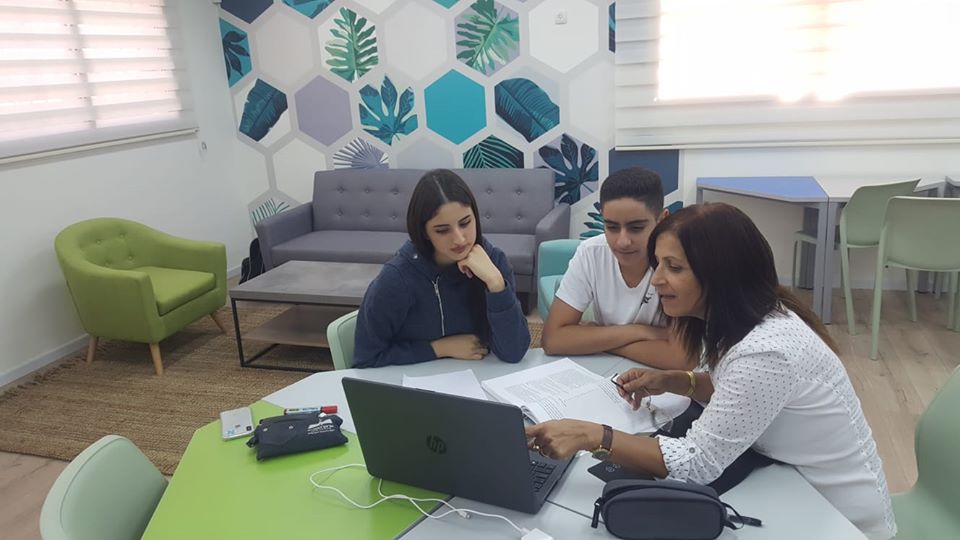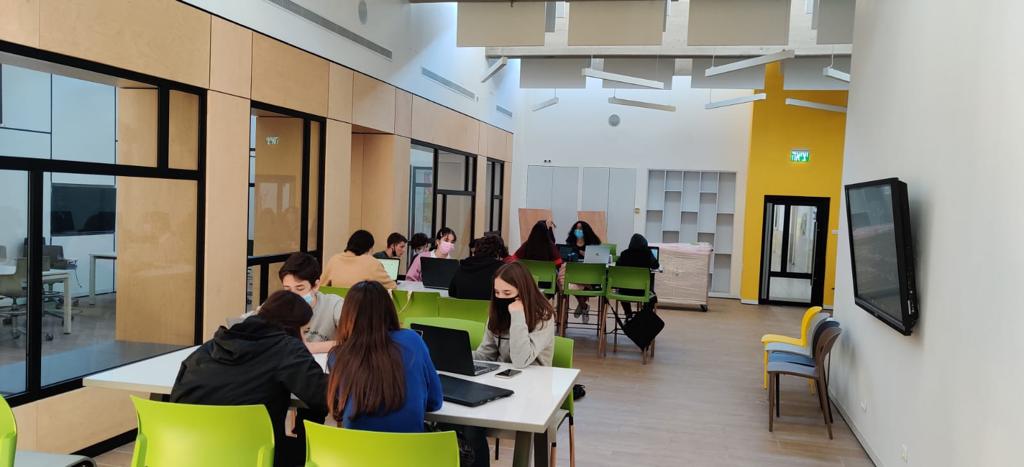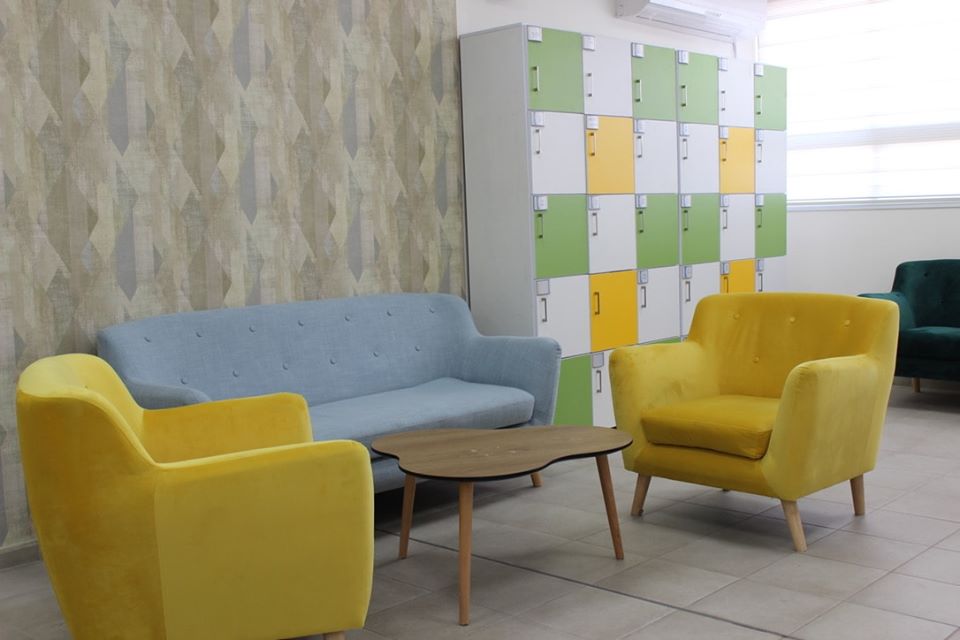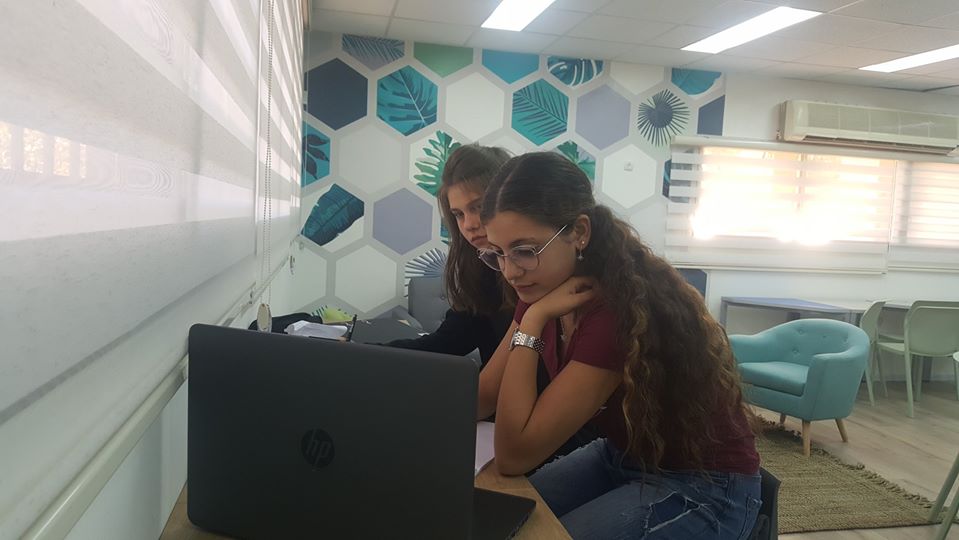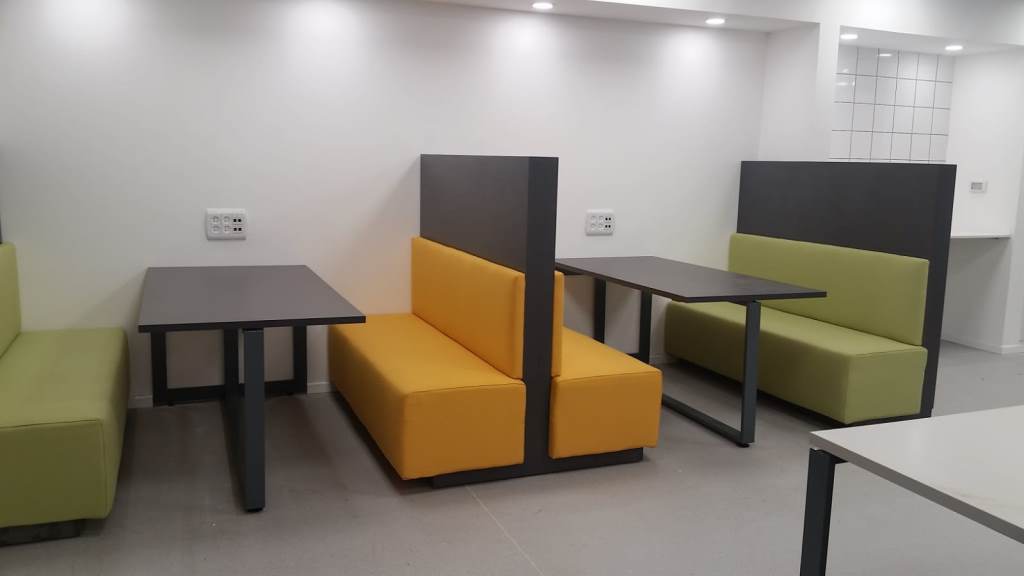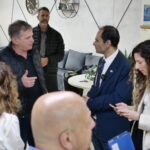In recent years, the Israel Sci-Tech Schools Network has focused on developing innovative solutions to improve the relevance of the school experience, as part of the “Start-Up Education” initiative. Innovative learning spaces are planned and built-in combination with relevant and adapted innovative pedagogy. These new spaces improve student learning and success outcomes as well as position the school in the community as an innovative and dynamic school environment.
Learning spaces and content: A learning space geared towards a specific profession, such as a robotics lab, a media and film studio or an artist workshop. The space is designed to support the field of knowledge, the principles and skills required in this field of knowledge.
Flexible learning space: Enabling diversity in teaching methods, active learning and the use of pedagogical alternatives such as: learning through play, learning while standing or lying down, collaborative learning, learning in “chevruta” and other different topologies of learning groups.
Learning Space Makers: Enabling planning and construction of projects in a Makers environment and in a Project Based Learning (PBL) approach similar to innovation centers in the high-tech and start-up world.
TED-style lectures: Exhibition and exhibition space – a learning environment that allows the presentation of students’ current work, as well as lectures, pitches, TED-style lectures and more.
Extra-classroom learning spaces: The roof of a school that can be used as a botanical garden, an agricultural farm, a green energy complex. School yard: a scientific garden, an agricultural farm, an outdoor classroom, designed corridors and work areas.
Innovative innovation spaces are integrated: Which include a variety of functions according to the area designated in the school, the relevant trends, the ages of the learners, the connection to the community and more.

